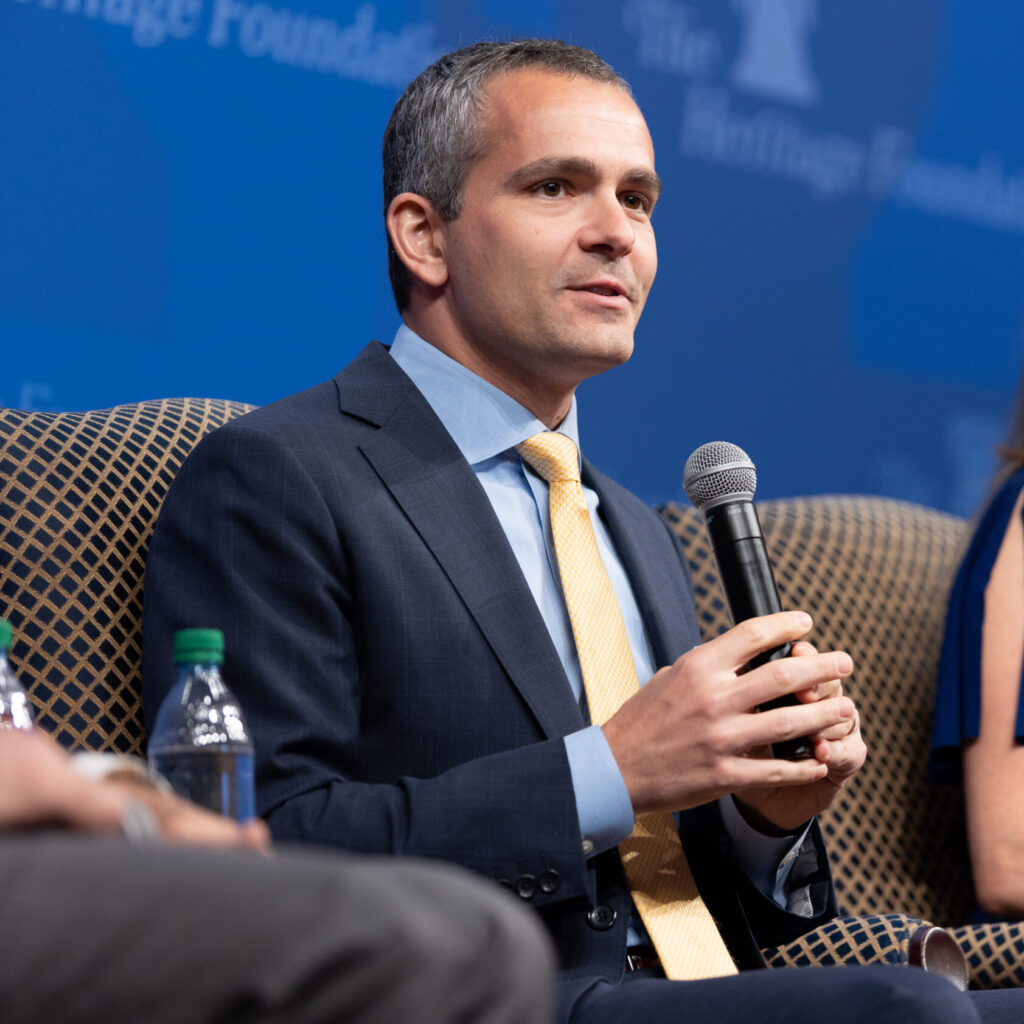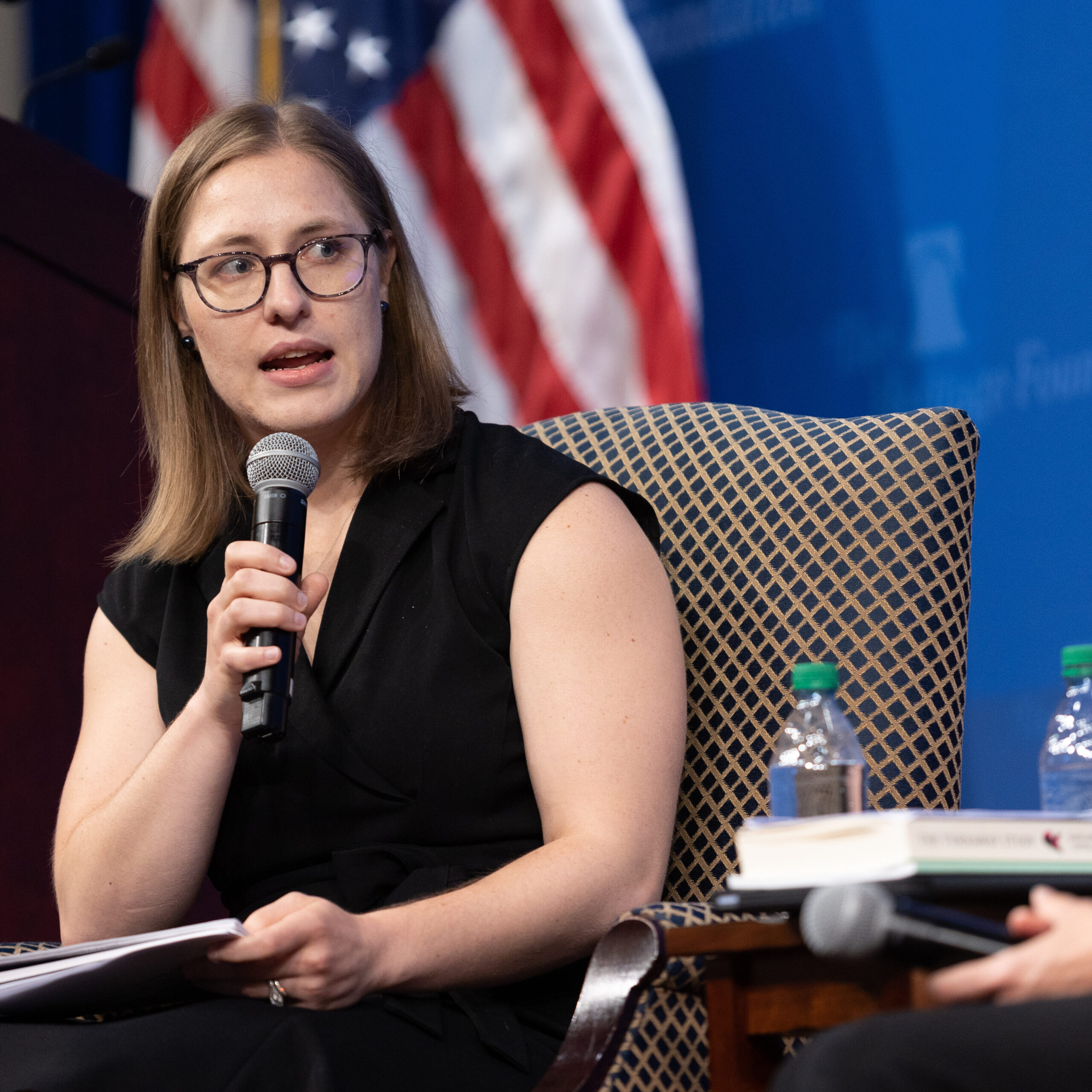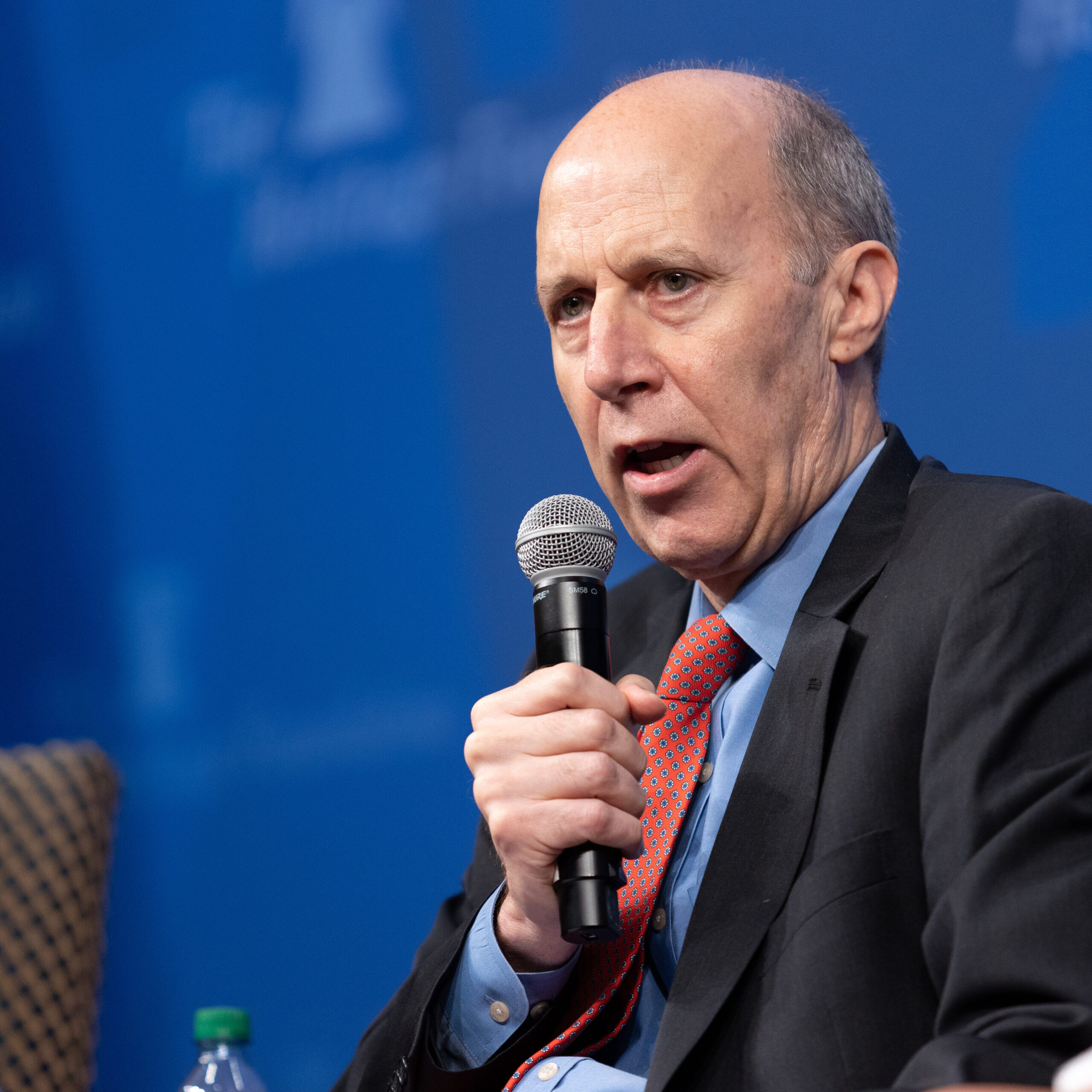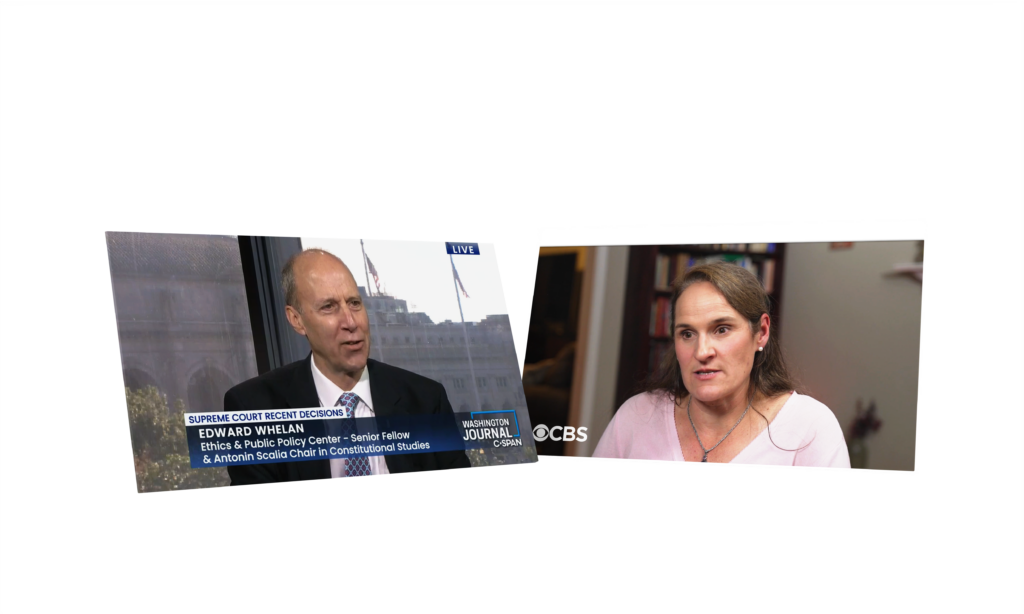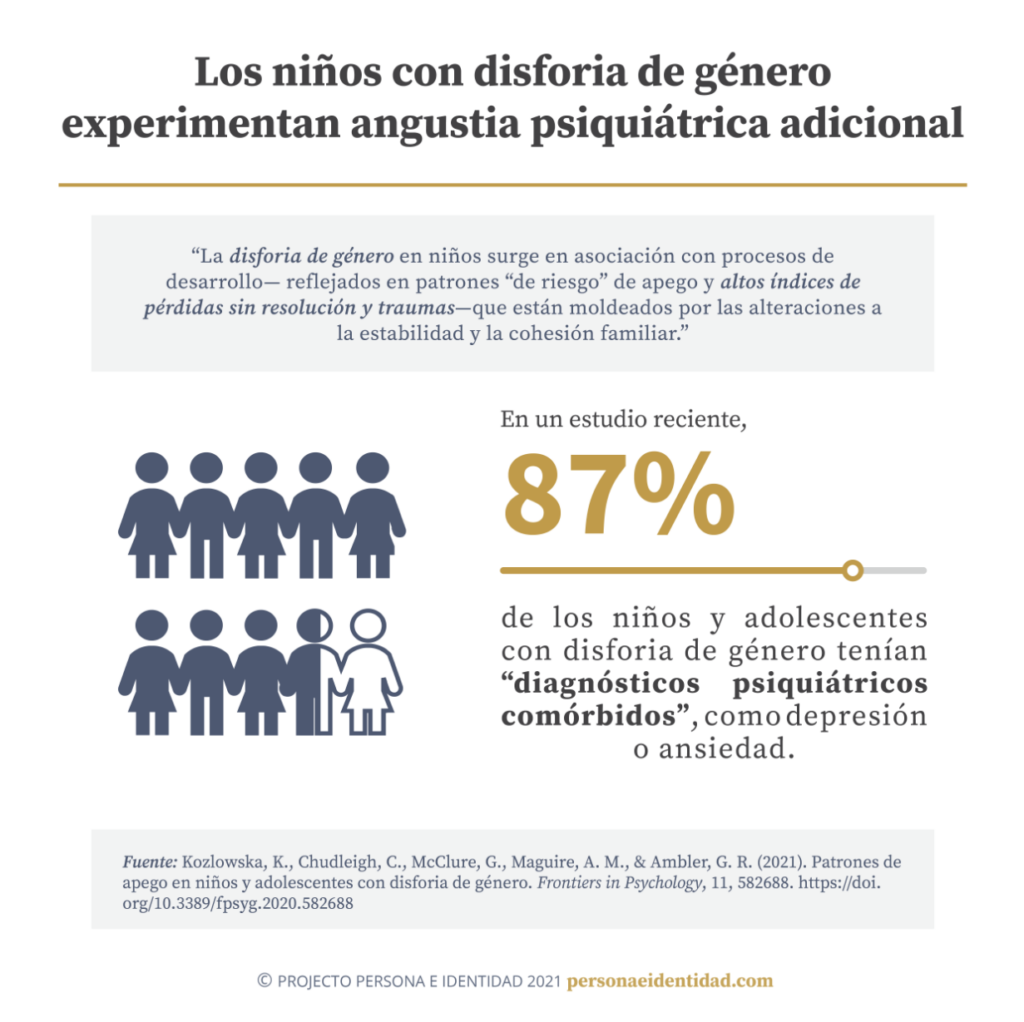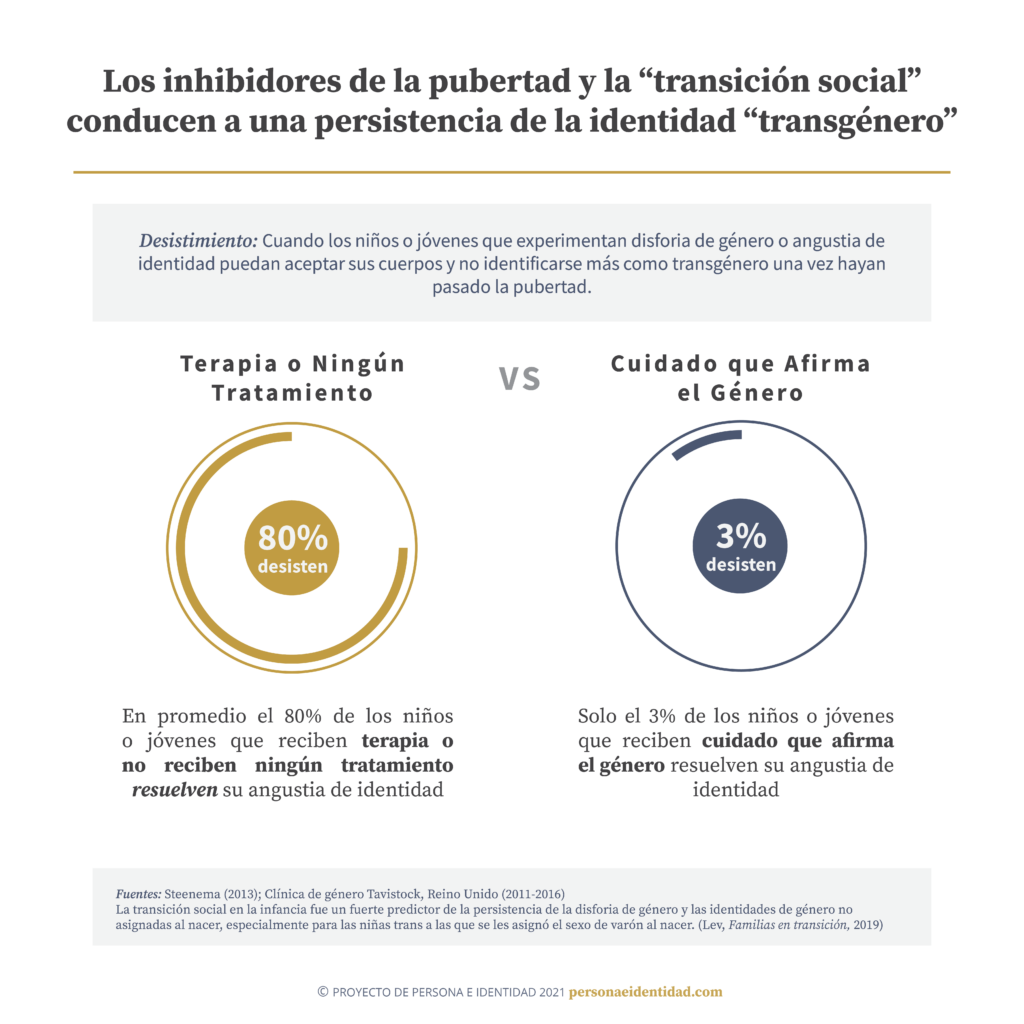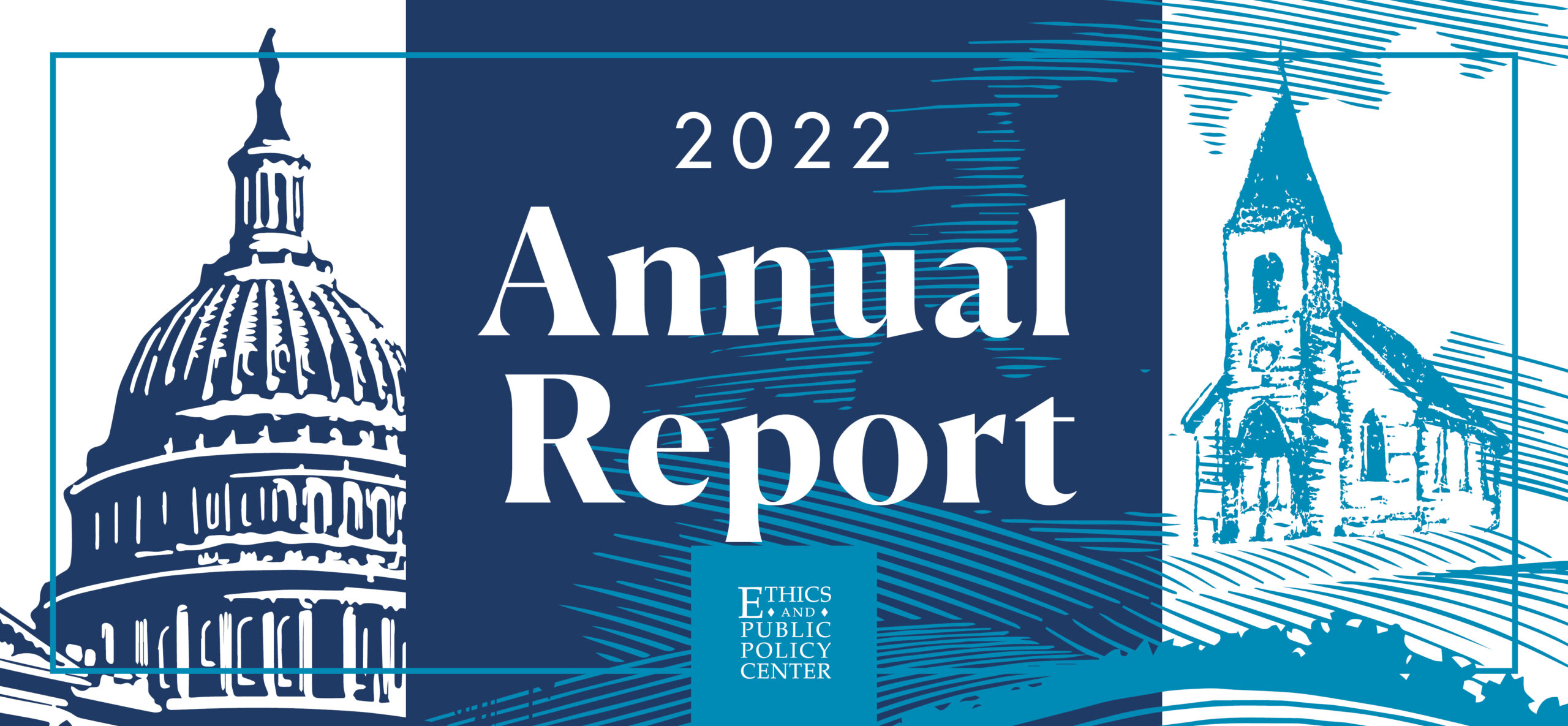

“Society only merits the long-lasting social, cultural, and political benefits from religion if there are actually true believers. And crucially, true belief is where we find our final, ultimate happiness.
The contribution of religion to America is irreplaceable because all of human nature is, ultimately, oriented toward God. Being authentically religious is, in this way, the most important contribution that religious communities in America can make.”
—Ryan T. Anderson
Letter From the President
The Ethics and Public Policy Center was founded in 1976 with a mission to apply the riches of the Jewish and Christian traditions to contemporary questions of law, culture, and politics. For almost half a century, EPPC has been at the center of national debates over the moral and ethical norms informing our laws and shaping our society—and 2022 was no exception.
Our scholars think deeply about the questions that matter most, working to build a culture that protects and advances an authentic understanding of human dignity and human identity, and advocating for policies that will enable all Americans to flourish. Our vision is to build and sustain a society where families and faith communities prosper and where the traditional American way of life thrives—where, as Martin Luther King Jr. reminded us, just laws are derived from the natural law and the eternal law. EPPC’s scholars have consistently sought to defend the inherent dignity of the human person, individual freedom and responsibility, justice and the common good, the rule of law and limited government.
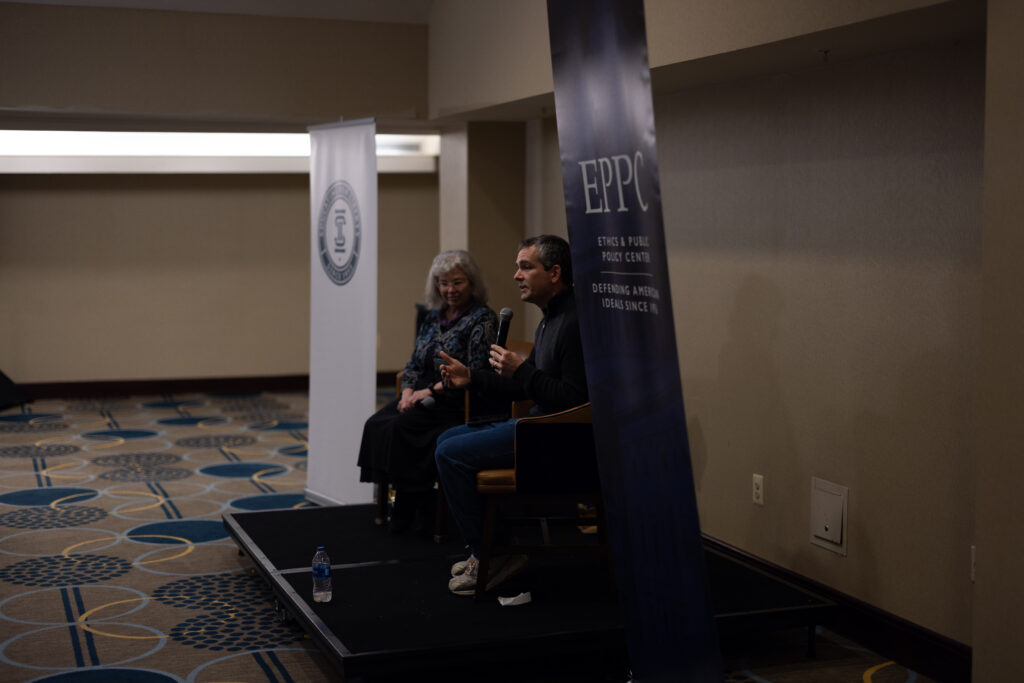
Keep Reading
The Supreme Court’s decision in Dobbs v. Jackson Women’s Health Organization in June of 2022 was the fruit of decades of tireless work by the pro-life movement, a cause to which EPPC scholars across the decades have devoted themselves. Dobbs represents a new beginning and a new call to action for all those dedicated to securing justice and support for unborn children and American families. In the months since the Court consigned Roe v. Wade to the dustheap, EPPC has risen to the new challenges of this moment, offering a principled and prudent path forward for pro-life efforts to protect every human being.
Building a culture of life doesn’t end with the fight against abortion. Families remain under assault. The sexual and technological revolutions threaten family formation, as well as the family’s capacity to raise free citizens prepared to inherit and uphold our nation’s founding tradition—to say nothing of raising citizens for the Kingdom of God. Strong families and communities are essential building blocks of a healthy society, and they deserve protection from the growing ideological and material forces undermining their essential work. EPPC promotes the truth about human nature, consistently proposing solutions that promote human flourishing and are faithful to constitutional principles.
Through our new Life and Family Initiative, EPPC is advancing public-policy proposals to support families and parents as they serve their irreplaceable function in our society. Our Bioethics and American Democracy program trains pro-life medical professionals to serve as expert witnesses for court cases and legislative hearings in the wake of Dobbs.
The legal experts in EPPC’s HHS Accountability Project apply their extensive experience to new legal challenges as they oppose HHS regulations that would require healthcare providers to participate in and administer abortions and medical gender transitions with no religious freedom exceptions, and combat efforts to make so called “gender-affirming” medical intervention the national standard of care. Our Technology and Human Flourishing Project goes beyond standard conservative concerns with Big Tech censorship to explore the ways in which new technologies can advance or undermine human well-being, especially with respect to children. The Person and Identity Project assists churches, schools, and parents around the country in responding to the harmful encroachment of gender ideology.
In our Catholic Studies and Evangelicals in Civic Life programs, EPPC scholars form the leaders of the next generation in the Christian theological tradition and the natural-law philosophical tradition, applying both sets of principles to public-policy matters. The scholars in our Education and American Ideals program, meanwhile, work to reform public education, while articulating a proper understanding of what it means to be a well-formed and well-educated citizen.
Through the integrated efforts of EPPC’s programs we provide intellectual leadership to policy- and culture-makers at all levels of society as we articulate the truth of the human person and then translate that truth into practical solutions for American civil leaders: our parents, schools, churches, and policy organizations.
None of this would be possible without our generous benefactors across the country. We honor their involvement and support by working diligently to defend a full and true account of human nature, ensuring that American law is derived from the natural and eternal law, and thus that America flourishes for generations to come.
The Dobbs Decision and the Pro-Life Future
Ryan T. Anderson, Rachel N. Morrison, and Ed Whelan, speak in June at the “Life After Roe” Symposium, co-sponsored by EPPC, the Heritage Foundation, and Americans United for Life
Life and Family Initiative
As the Supreme Court prepared to issue its Dobbs ruling in the Summer of 2022, EPPC launched its Life and Family Initiative to advance a pro-life, profamily agenda that responds to the realities of the post-Roe future.
This new program brings together the longstanding pro-life efforts of many EPPC scholars, including Mary FioRito, Erika Bachiochi, and Patrick T. Brown, offering an integrated and holistic vision of a society where unborn children are protected by law and growing families have access to the social support they need.
Fighting for Life in Post-Roe America
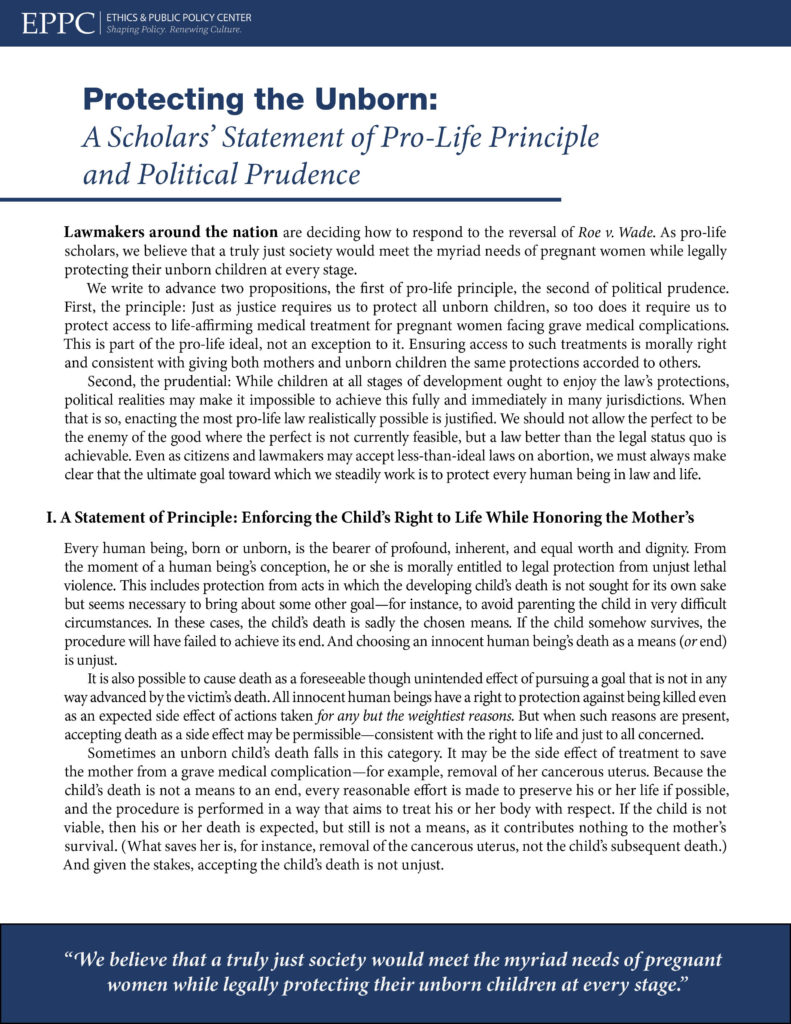
Statement of Pro-Life Principles
Developing a comprehensive and prudent political strategy remains a pressing issue for the pro-life movement in the wake of Dobbs. “Protecting the Unborn: A Scholars’ Statement of Pro-Life Principle and Political Prudence”—written by EPPC scholars and signed by a coalition of leading intellectuals—articulates an ethically sound foundation for pro-life efforts and offers guidance for sensible policymaking that will steadily work toward the ultimate goal of protecting every human being in life and law. Signatories of this statement include Oxford University’s John Finnis; EPPC board member (and Princeton University professor) Robert P. George; rector of the Pontifical University of Saint Thomas Fr. Thomas Joseph White, O.P.; bioethicist Charles Camosy; and over fifteen other leading public thinkers.
How Abortion Harms Everything
With Roe no longer the law of the land, we now need to persuade people of the truth. Tearing Us Apart: How Abortion Harms Everything and Solves Nothing, co-authored by Ryan T. Anderson and Alexandra DeSanctis, reframes the abortion debate in the context of post-Roe America. The book was published in June 2022, just four days after the Supreme Court overturned Roe. Tearing Us Apart equips pro-lifers for the great task of shaping policy and culture in the wake of Dobbs, exposing the false promises of the pro-abortion movement and explaining how legal abortion has harmed our entire society, including unborn children, women and families, the medical profession, our legal system, and our politics.
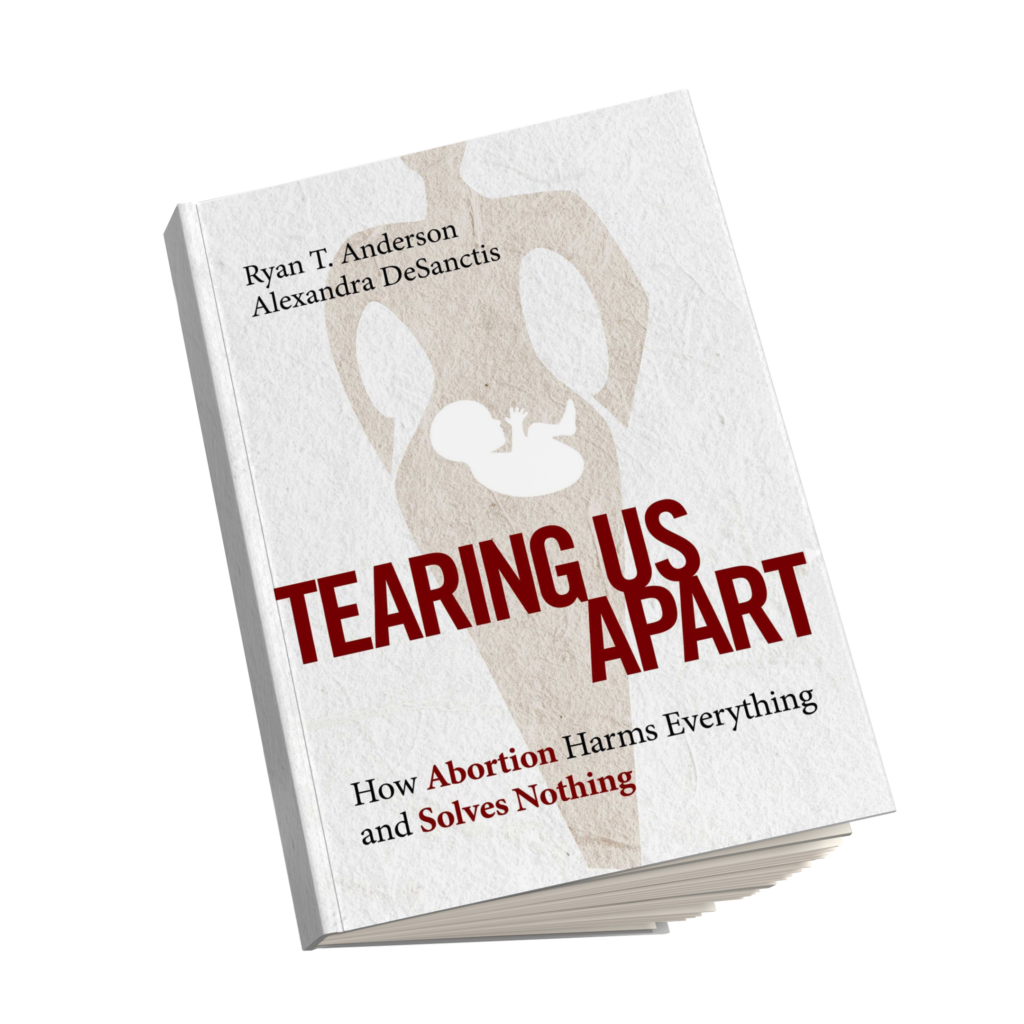

Alexandra DeSanctis Joins as a Full-Time Scholar
In September, EPPC announced the addition of Alexandra DeSanctis as a fellow in the Life and Family Initiative. After serving as a visiting fellow with EPPC for two years, writing at National Review, and co-authoring Tearing Us Apart, DeSanctis joined EPPC full-time to work on culture and family issues, with a particular focus on abortion policy and pro-life advocacy.
She continues to write a regular column for National Review, participate in public debates on abortion, lecture widely, and contribute to white papers and legislative briefings. In the fall of 2022, DeSanctis taught journalism at Hillsdale College as the Eugene C. Pulliam Visiting Fellow and led a workshop for student writers at the University of Notre Dame. Her writing has been published in the New York Times, the Wall Street Journal, the Washington Post, and The Atlantic, among other publications.

Life After Dobbs Podcast
In the run-up to the Dobbs decision, EPPC launched a new podcast series, Life After Dobbs. Hosted by Anderson and DeSanctis, the podcast expands on themes from Tearing Us Apart, tracing the history of the pro-life movement leading up to the victory in Dobbs and exploring the movement’s future. Each episode features an interview with an expert as the hosts discuss the politics of abortion in the wake of Roe, the future of feminism, and the goal of building a culture that welcomes children and supports families.
Putting Families First
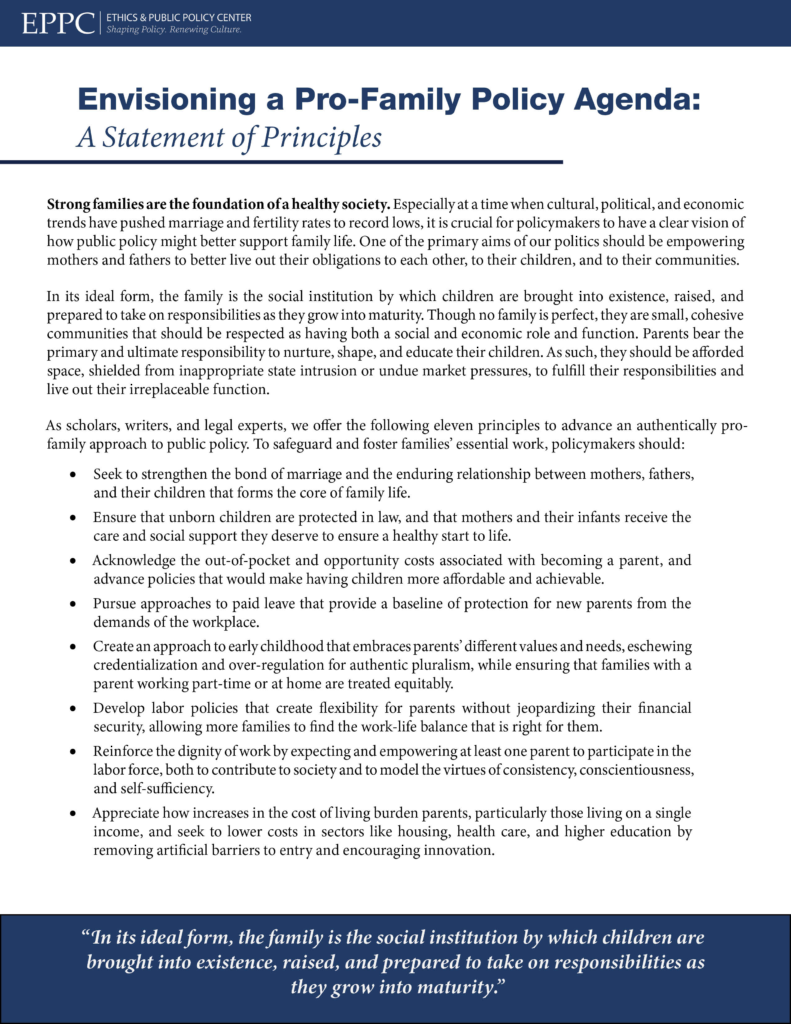
Statement of Pro-Family Principles
Worrying long-term cultural and economic trends, declining marriage rates, and record-low fertility have combined to create an unprecedented challenge to growing families. Policymakers need clear guidance in meeting this challenge. In August EPPC gathered a coalition of legal scholars and policy experts for a day-long discussion led by Patrick T. Brown, resulting in a statement of principles for a pro-family approach to public policy. “Envisioning a Pro-Family Policy Agenda: A Statement of Principles” suggests eleven tenets to guide a pro-life, pro-family approach to policymaking.
Signatories include influential family-policy scholars such as Yuval Levin of the American Enterprise Institute, W. Brad Wilcox of the Institute for Family Studies, and Helen Alvaré, the Robert A. Levy Chair in Law & Liberty at the Antonin Scalia Law School. Leading conservative and religious organizations have endorsed the statement since its release, representing institutions as diverse as the Niskanen Center, Brigham Young University, and Americans United for Life.
Shaping Conservative Family Policy
The authors of “Envisioning a Pro-Family Policy Agenda” acknowledge that “translating these principles into specific policies will require creativity, humility, and prudence.” With his work for the Life and Family Initiative, Patrick T. Brown, who joined EPPC in 2021 after working on economics for Senator Mike Lee, puts this into action, collaborating with scholars and policymakers to shape an economic agenda that supports American families. Brown writes regularly for leading publications such as Newsweek and the New York Times, and in 2022 he joined Public Discourse, CNN, and Deseret News as a regular contributor.
He has worked on reports and policy proposals in conjunction with the Institute for Family Studies and the American Enterprise Institute and has consulted with the offices of Senators Mitt Romney, Ben Sasse, Tom Cotton, Marco Rubio, and Tim Scott, among others, and the policy teams of Governors Spencer Cox of Utah and Ron DeSantis of Florida, to articulate how economic forces shape family formation and how conservative public policy can support families’ ability to form, be fruitful, and flourish.
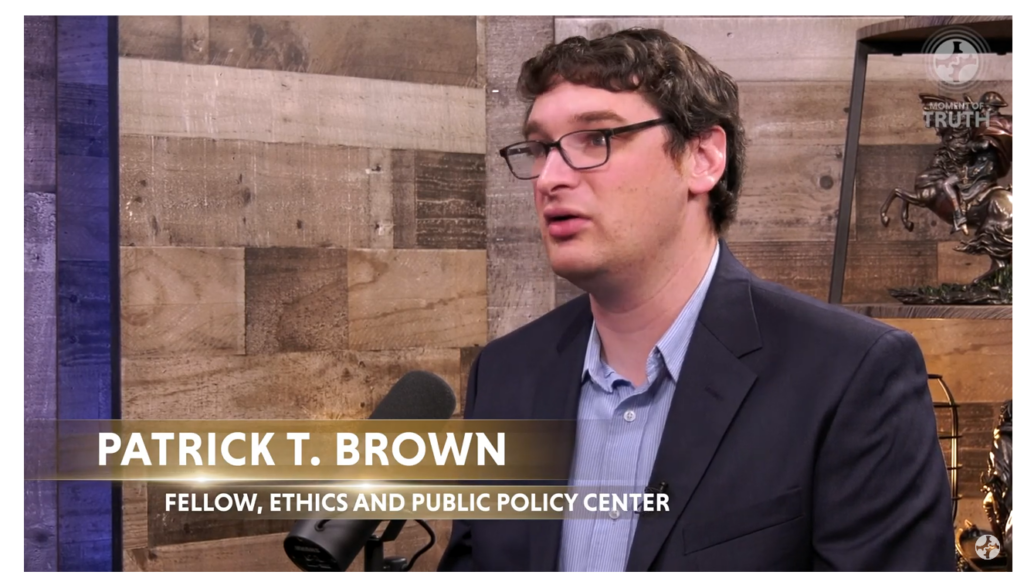
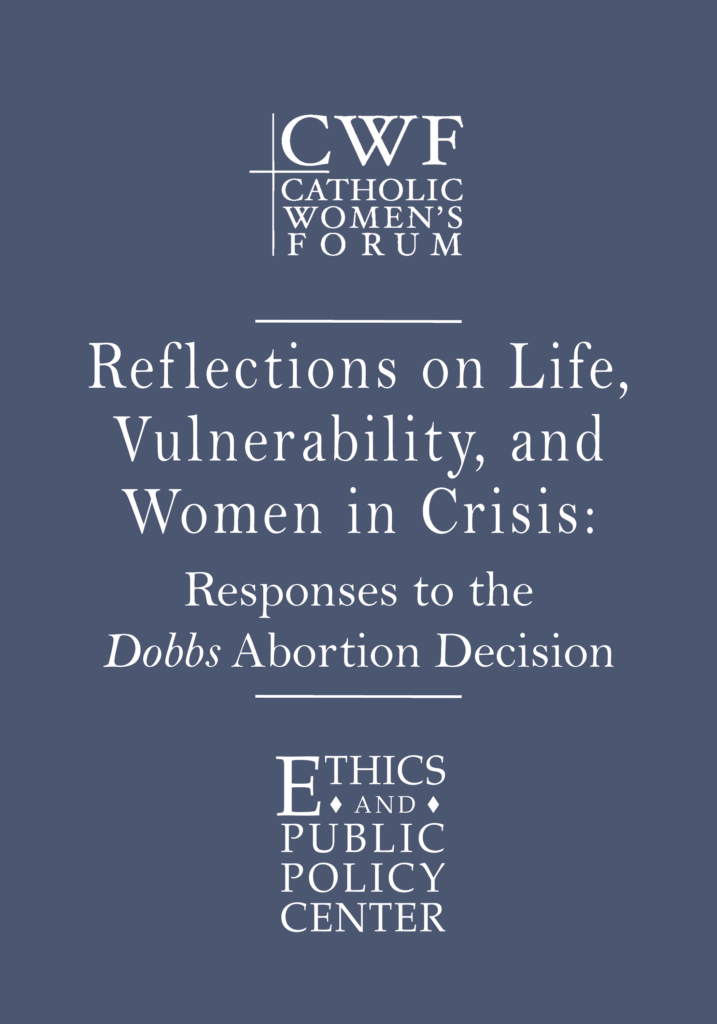
An Authentic Culture of Life
In September, EPPC’s Catholic Women’s Forum released Reflections on Life, Vulnerability, and Women in Crisis: Responses to the Dobbs Abortion Decision, a booklet addressed to His Holiness Pope Francis. The collection showcases the perspectives of women involved in the pro-life movement—women who, as CWF director and Kate O’Beirne Senior Fellow Mary Rice Hasson notes in her opening letter, “have supported women and families facing unexpected or difficult pregnancies with love, committed friendship, material assistance, and spiritual support.” The collection exemplifies CWF’s mission: to build an authentic culture of life that protects the unborn and serves the most vulnerable. The apostolic nuncio to the United States, Archbishop Christophe Pierre, forwarded the booklet to Pope Francis.
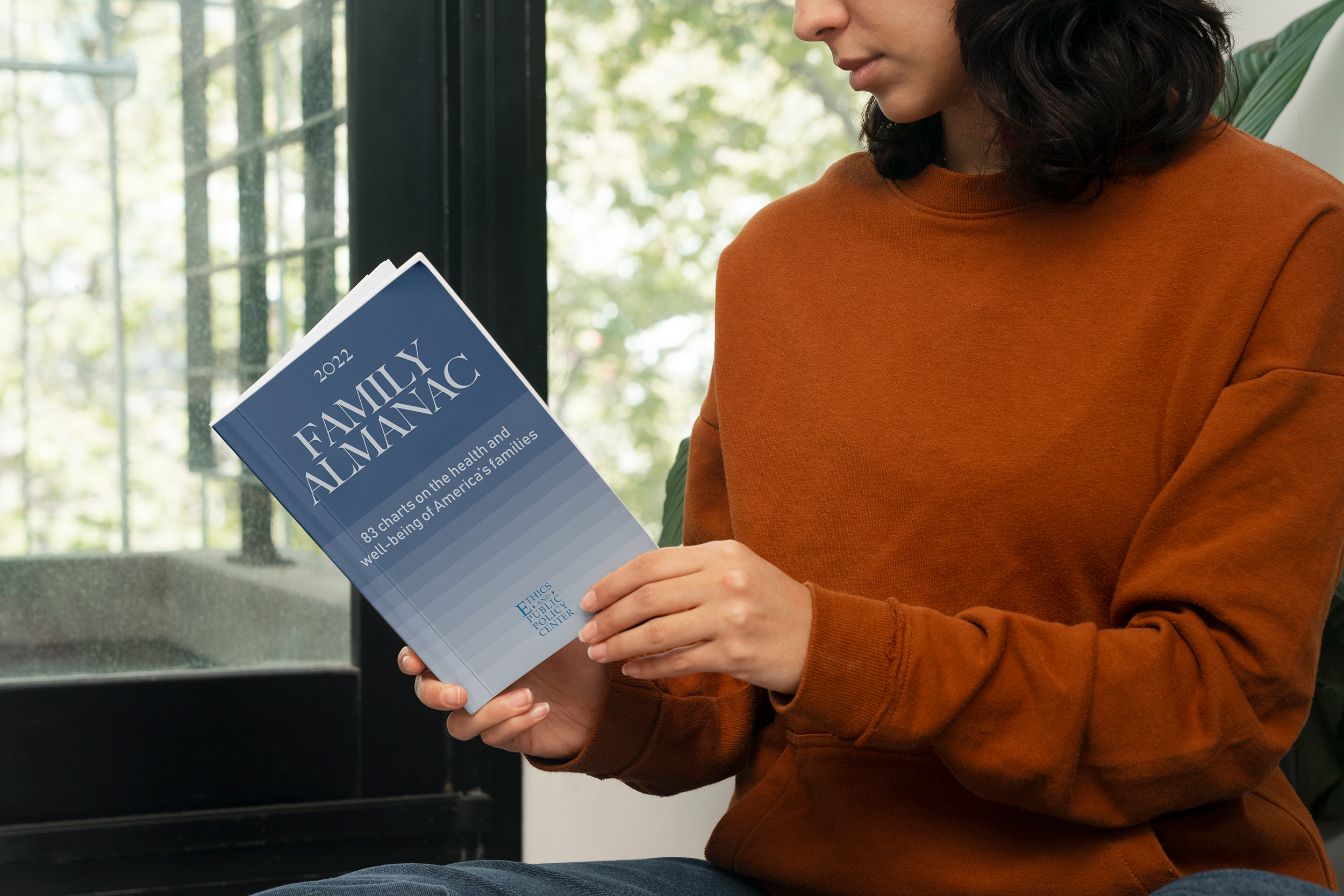
A Guide to the Modern American Family
If the conservative movement is going to take our public responsibility to families seriously, it needs a solid understanding of what today’s American family really looks like. To inform these ongoing efforts with a common set of facts and an accurate picture of the realities of family life, Patrick T. Brown compiled the 2022 Family Almanac, combining information from academic research and the U.S. Census Bureau, the National Center for Education Statistics, the National Center for Health Statistics, and the Bureau of Labor Statistics. This comprehensive resource is a reliable guide to the people whom family policy needs to serve and the challenges they face.
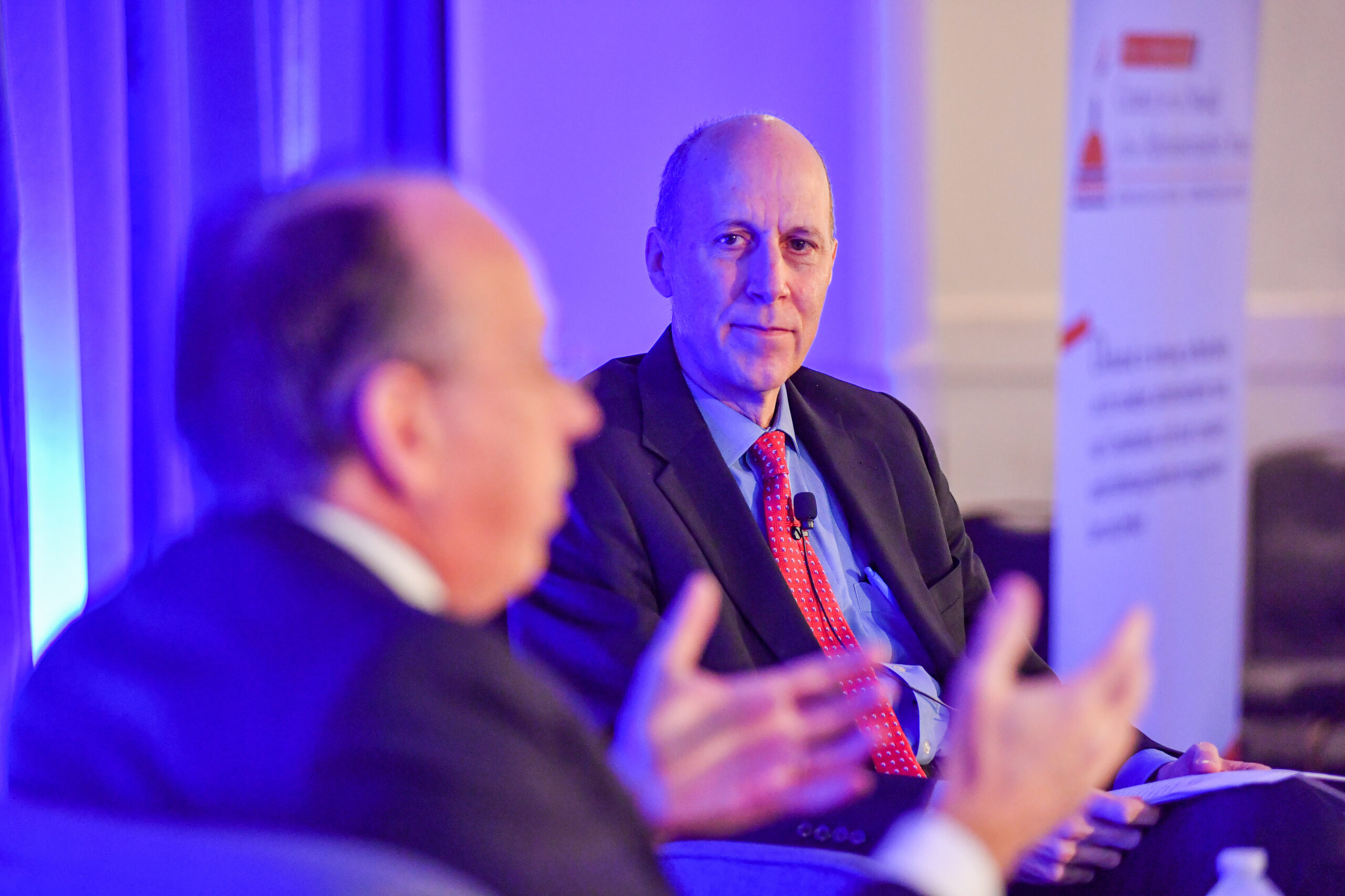
The Triumph of the
Conservative Legal
Movement
The year’s momentous victory, overturning Roe v. Wade and Planned Parenthood v. Casey, was the fruit of decades of coordinated and sustained effort by conservative legal scholars. In a cover story for National Review in July, Ed Whelan, EPPC’s Distinguished Senior Fellow and Antonin Scalia Chair in Constitutional Studies, celebrated the ruling as the crowning achievement of the conservative legal movement that he has served to shape for decades.
Whelan played an invaluable role as one of the most prominent pro-life commentators and legal analysts in the country during the Dobbs debate. In addition to his indispensable daily commentary in his widely read “Bench Memos” blog, he published a Wall Street Journal op-ed on the day of the Dobbs oral arguments and debated the case in a nationally televised episode of PBS’s Firing Line.
In April, Whelan organized a symposium of 20 leading conservatives on “The Future of the Conservative Legal Movement.” Participants included law professors, scholars, litigators, government lawyers, strategists, and journalists, representing a broad range of perspectives within the conservative legal movement. He also organized a conference on religious liberty, co-sponsored with Scalia Law School’s Gray Center on Administrative Law, and spoke frequently for law students and lawyers across the country.
Shaping Policy in 2022
HHS Accountability Project
In 2022, the HHS Accountability Project, directed by Rachel N. Morrison, continued its legal, policy, and advocacy work, keeping a close eye on the Biden administration’s Department of Health and Human Services and other agencies that issue federal regulations concerning the right to life, religious liberty, and gender.
The year started off with opposition to the OSHA vaccine mandate and HHS’s continued public-health–emergency declaration for Covid. With Covid concerns waning, the project shifted its focus to the growing threat of gender ideology, which the Biden administration is prioritizing and pushing, especially at HHS and through sex nondiscrimination regulations.
In March, Morrison published a law article in the Federalist Society Review detailing the Biden administration’s gender-identity policies in employment, healthcare, education, and athletics, with a focus on how they impact women’s rights, children’s interests, and religious liberty. The article is the journal’s most-viewed article of the year and was cited by U.S. District Court Judge Matthew J. Kacsmaryk in Texas v. EEOC, which invalidated Equal Employment Opportunity Commission guidance that would require Texas to permit state employees to use bathrooms and pronouns according to their self-identified genders.
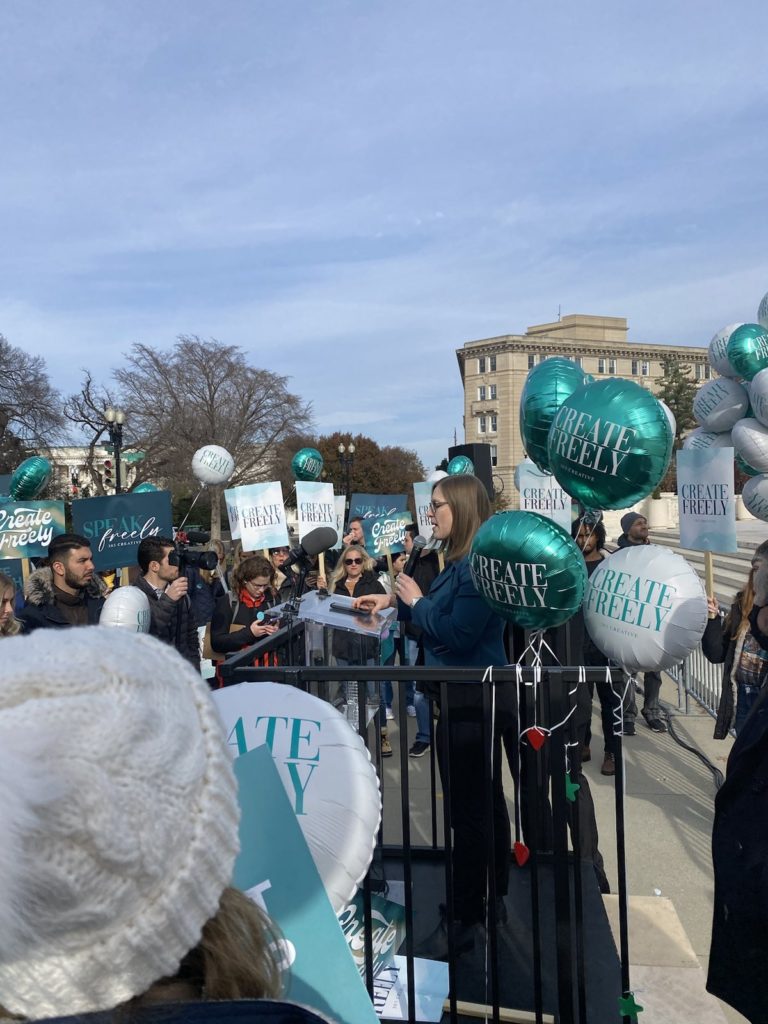
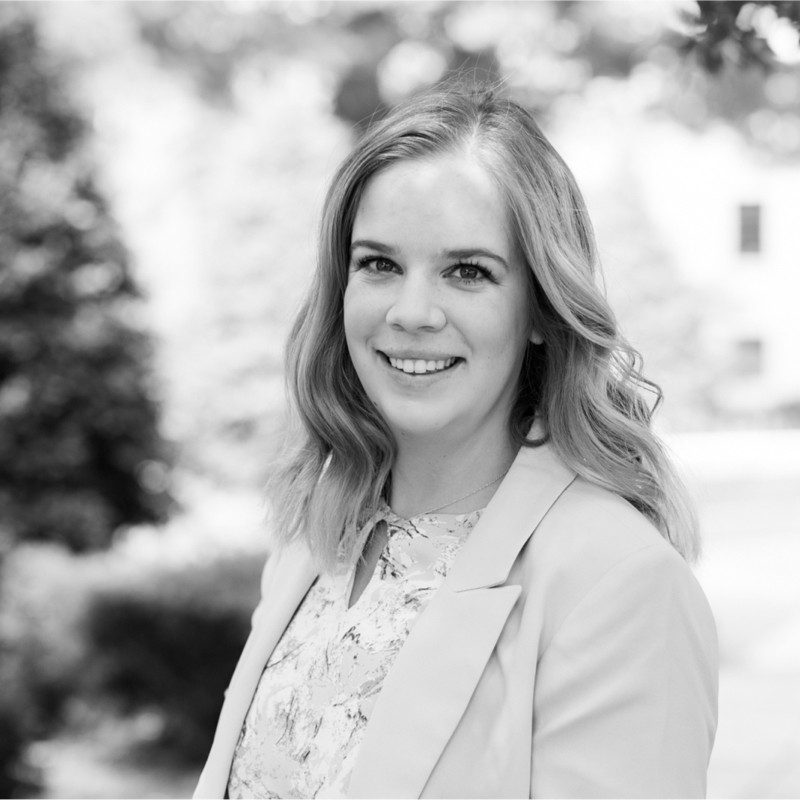
In June, Natalie Dodson joined the project as Legislative and Regulatory Affairs Associate. Morrison and Dodson have quickly been recognized across the conservative movement as vital to its growing engagement with the regulatory process, changing and delaying bad regulations while preparing for future legal challenges.
Fellow Dr. David Gortler continues the lengthy process of reviewing the safety data and adverse event reports for Covid vaccines, cross-sex hormones, puberty blockers, and the abortion drug mifepristone. He wrote regularly on the unscientific approach taken by the FDA, HHS, and the Biden administration, specifically for Covid vaccine authorizations, so-called “gender affirming care,” and abortion drugs.
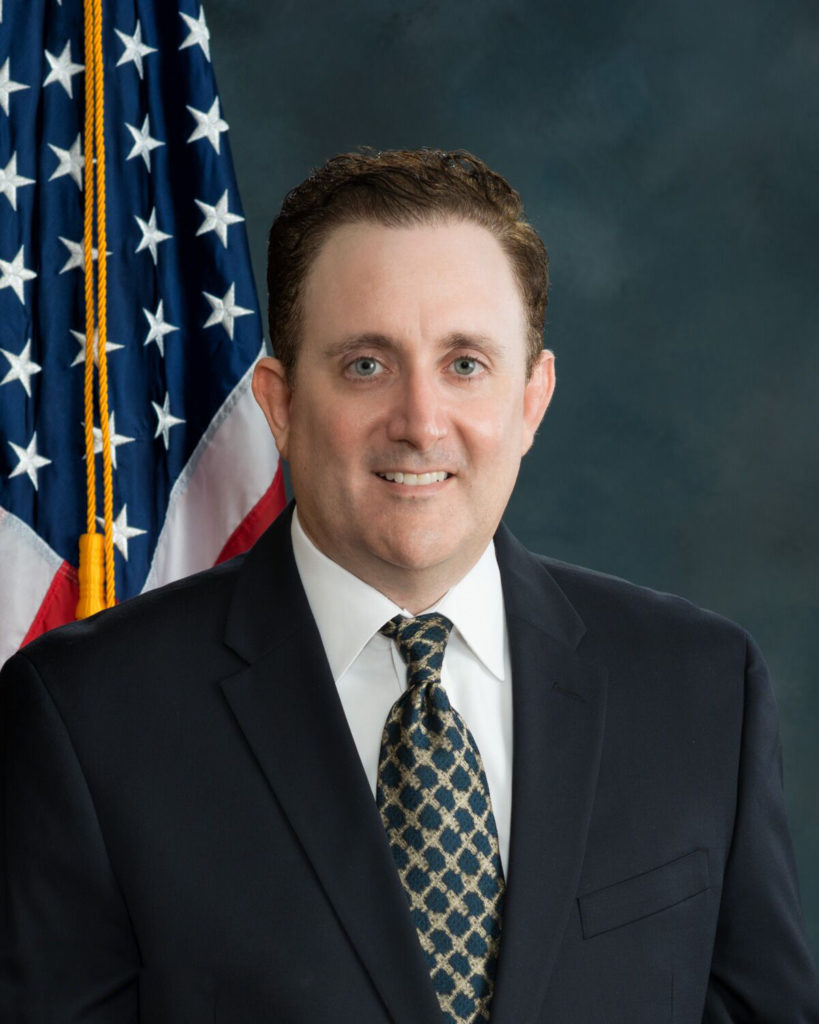
Combating Gender Ideology
Expanding the Project’s impact, this year Morrison worked closely with Mary Rice Hasson, EPPC’s Kate O’Beirne Senior Fellow and founder of the Person and Identity Project, to expose the harms of social, hormonal, and surgical attempts at “transition,” especially for children. Hasson and Morrison filed two amicus briefs and six public comments regarding the lack of medical consensus on the proper treatment for gender dysphoria and on the legitimacy of transition treatments. In response to an HHS mandate requiring doctors to provide “gender-affirming” treatments—including puberty blockers, cross-sex hormones, and surgeries for children—EPPC filed a brief opposing the policy and supporting the freedom to practice good medicine. Based on the number and substance of comments received and the time it would take the agency to adequately respond, HHS decided to not include the transgender mandate when it finalized its insurance regulations in the spring. Hasson and Morrison met with the Department of Veterans Affairs in May to discuss the department’s proposal to remove “gender alterations” as an exclusion from its medical benefits package, a change that would have greenlighted taxpayer funding for “transition” procedures.
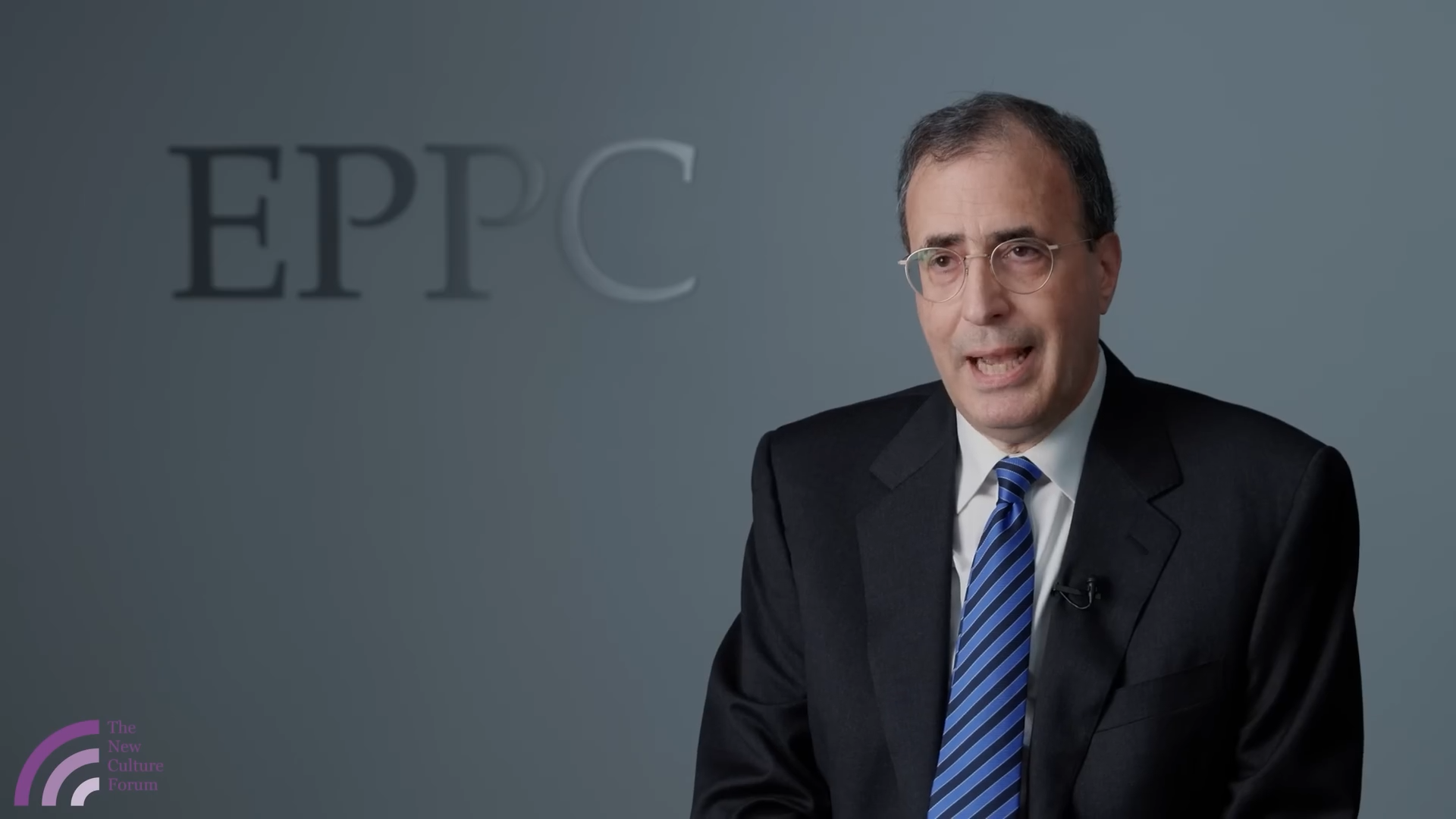
Education and American Ideals
It is essential to educate new generations in their rights and duties, preparing them to become responsible citizens. Much in contemporary culture rejects our country’s founding ideals and the way we teach the history that undergirds them. EPPC’s Education and American Ideals program provides effective conservative scholarship and leadership to face this challenge. These scholars advance our mission to build and sustain a society in which families and faith communities flourish and in which the traditional American way of life thrives.
Stanley Kurtz and the Fight for K–12 Education
Stanley Kurtz is at the forefront of the effort to defend American ideals in K–12 schools and on college campuses. A widely read contributor to National Review Online, Kurtz has established himself as the nation’s foremost critic of politicized “action civics”—which requires participation in political protests for course credit—and is among the most influential opponents of critical race theory. While many educational reform efforts focus solely on school choice, Kurtz spent much of 2022 working to hold public schools—both K–12 and universities—accountable to the public.
Kurtz’s work informs the general public, legislators, and policymakers across the country, who seek his expert guidance as they work to keep public policy and public schools committed to educating students and serving parents. In 2022, Kurtz released two pieces of model legislation: the “Sunlight in Learning Act,” a model state-level K–12 teacher transparency bill, and the “End Political Litmus Tests in Education Act,” a model state-level bill banning the use of mandatory “diversity statements” in K–12 and higher ed teacher hiring, promotion, and tenure.
His model legislation on CRT and action civics has assisted legislators, governors, and state attorneys general in Florida, Georgia, Illinois, Indiana, Kansas, Missouri, Nebraska, Ohio, and Oklahoma. Kurtz has also assisted policy experts in many other states and has testified on education before Congress and state legislatures.
Kurtz has published model bills or informal state-level legislative proposals covering CRT and action civics in K–12 education, K–12 curriculum transparency, CRT in higher education, prohibition of “diversity statements” in both K–12 and higher education, campus free speech and intellectual diversity, college-syllabus transparency, and student due-process protections in higher education.
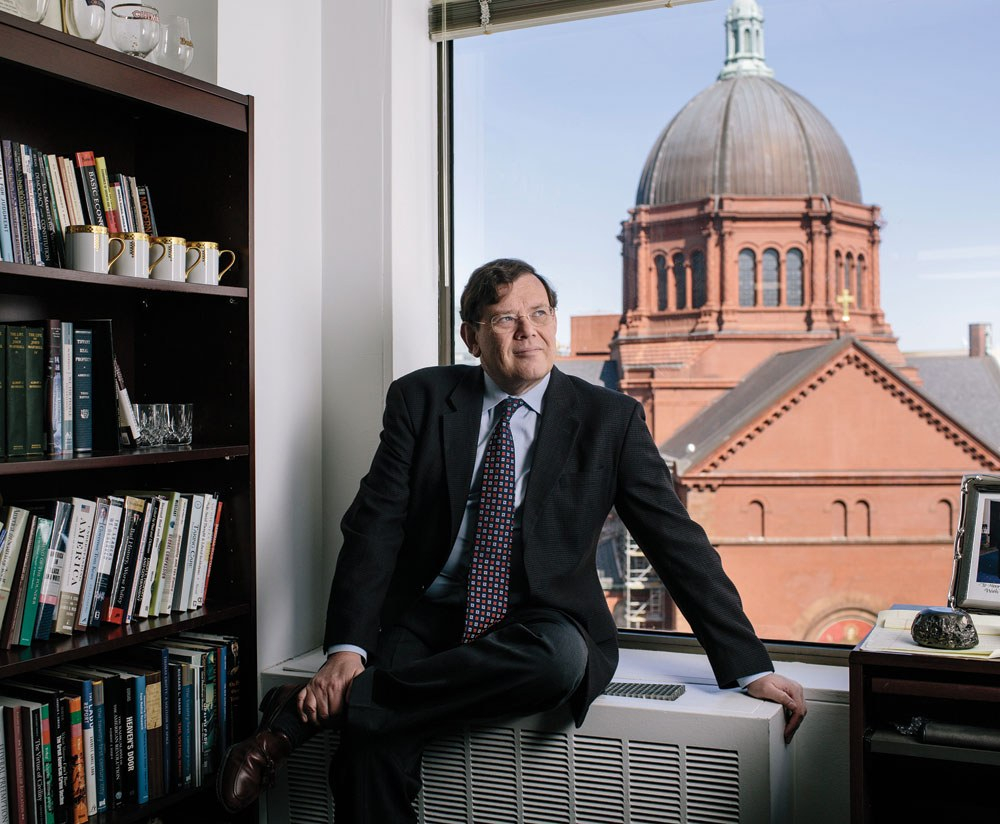
A Renewed Conservative Movement
In 2023, Senior Fellow Henry Olsen will celebrate his tenth anniversary at EPPC. The author of The Working Class Republican: Ronald Reagan and the Return of Blue-Collar Conservatism, Olsen writes daily columns in the Washington Post, advancing a sound vision for the future of the conservative movement. Olsen’s writing aims to facilitate discussions about renewing conservative ideals, healing intra-conservative divides, and preventing the triumph of socialism. Leading contenders for the 2024 GOP presidential nomination seek Olsen’s insights, congressional offices in D.C. regularly consult his work, and political observers rely on his thorough and knowledgeable coverage of elections, both before and after the votes are cast.
A Lifetime of Reporting
Senior Fellow Lance Morrow, a regular contributor to the Wall Street Journal and City Journal, draws on his rich career to write probing pieces on journalism, politics, and American culture. A longtime, award-winning essayist with TIME magazine, Morrow focuses on the moral and ethical dimensions of current events, including freedom of speech, freedom of thought, and political correctness on American campuses. In Spring 2023, Encounter Books will release his latest book, The Noise of Typewriters: Remembering Journalism. In part a memoir of his 40 years as a writer, the book illustrates how journalism has shaped the past century.
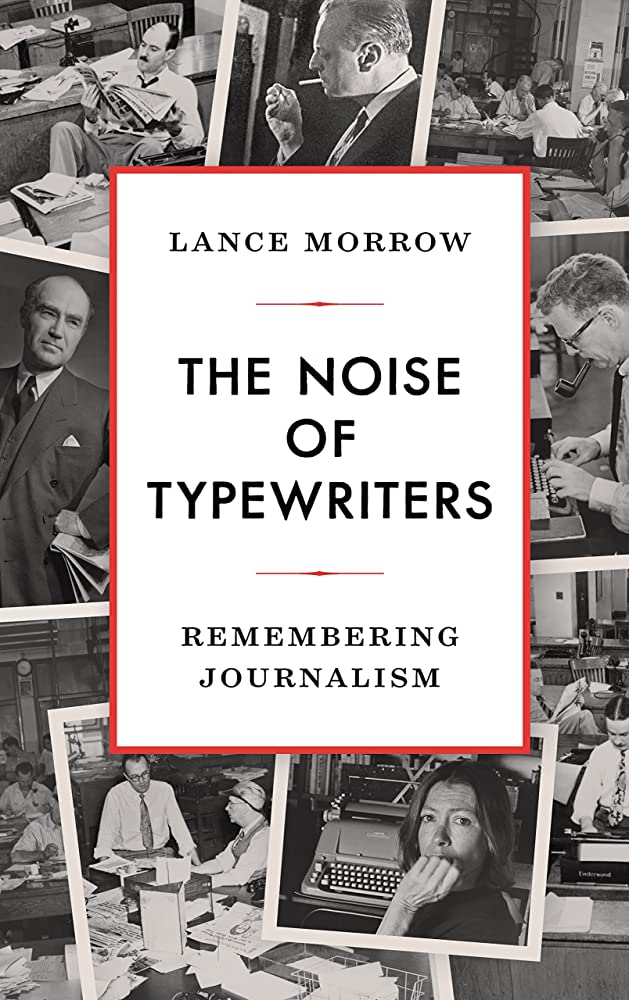
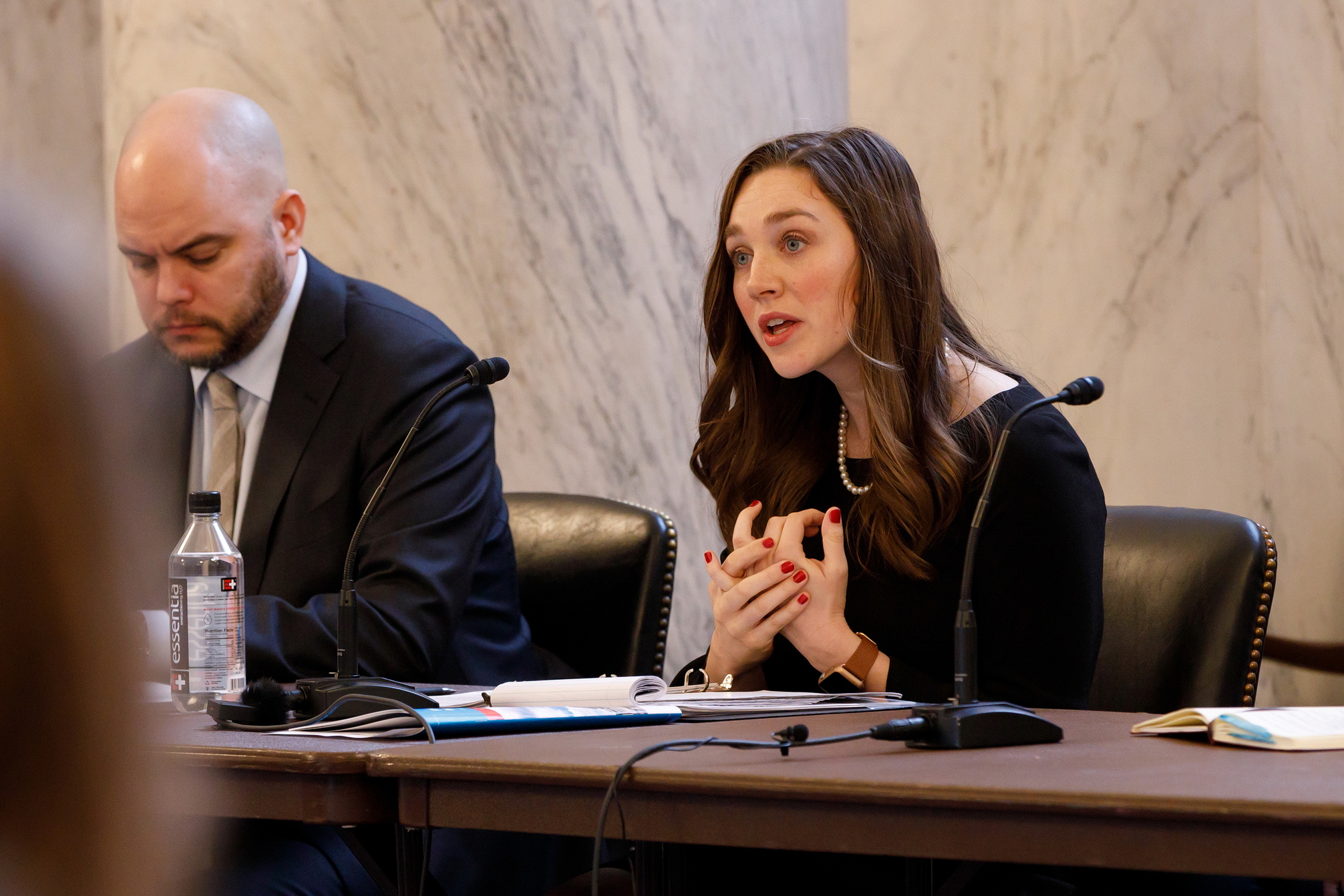
Technology and Human Flourishing
EPPC’s Technology and Human Flourishing Project, directed by Clare Morell, is dedicated to exploring how technology can both advance and undermine human dignity and human flourishing. It works with members of Congress, state legislators and attorneys general, and other policymakers and organizations to develop robust policy solutions that will protect children online, hold Big Tech companies accountable for their harms, and realign these firms’ incentives to serve the best interests of all Americans. At the same time, it works with scholars, practitioners, parents, and religious and other civic leaders to empower institutions of civil society to better exercise their own control over technology to harness it for good and prevent it from harm.
Policies that Protect Kids Online
Around 2012, something began to go wrong in the lives of teens. Depression, self-harm, suicide attempts, and suicide all increased sharply among U.S. adolescents between 2011 and 2019, with similar trends worldwide. The increase occurred at the same time social-media use moved from optional to virtually mandatory among teens, making social media a prime suspect for the sudden rise in youth mental-health issues. Evidence is mounting that social media use and internet access, virtually unregulated in America today, is behind a fatal crisis in mental health among our nation’s youth.
In collaboration with the Institute for Family Studies (IFS) and the Center for Renewing America (CRA), Morell has charted a legal and legislative path forward for the serious and effective regulation of these threats. In August, EPPC and IFS released “Protecting Teens from Big Tech: Five Policy Ideas for States,” a legislative brief with practical legislative strategies state-level lawmakers can implement to protect children online. In December, EPPC and CRA released “Combating Obscenity on the Internet: A Legal and Legislative Path Forward,” outlining the case for revising current obscenity laws, which are inadequate to control the torrent of unregulated online pornography easily accessible on the internet.
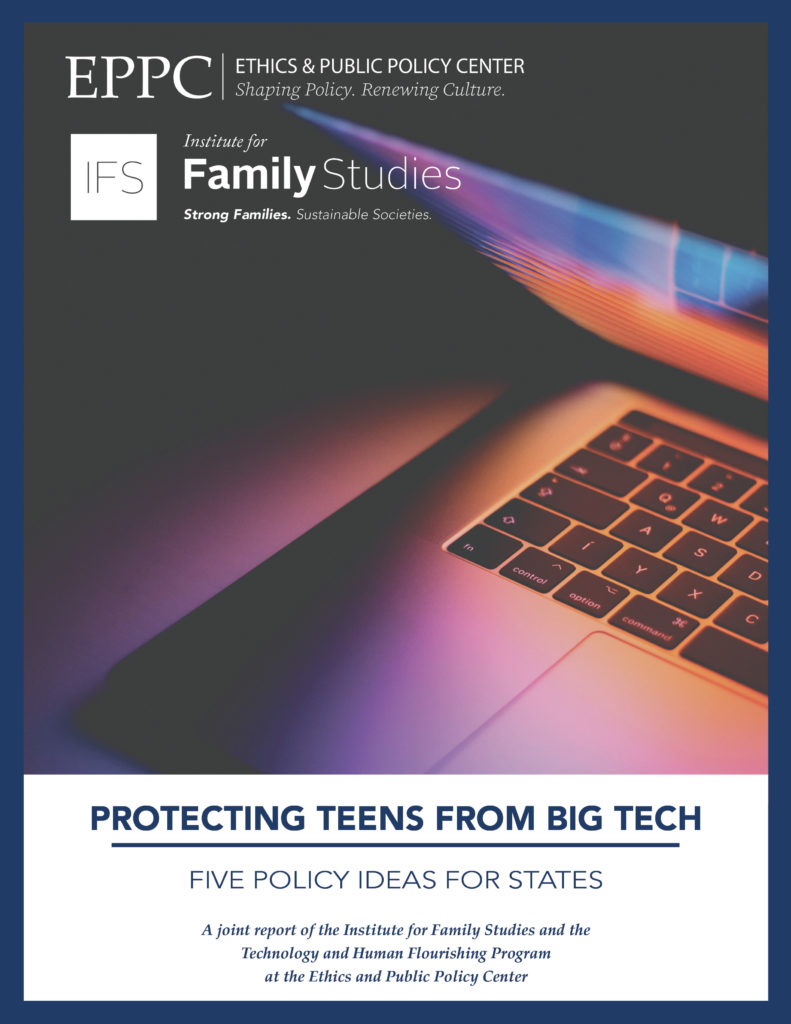
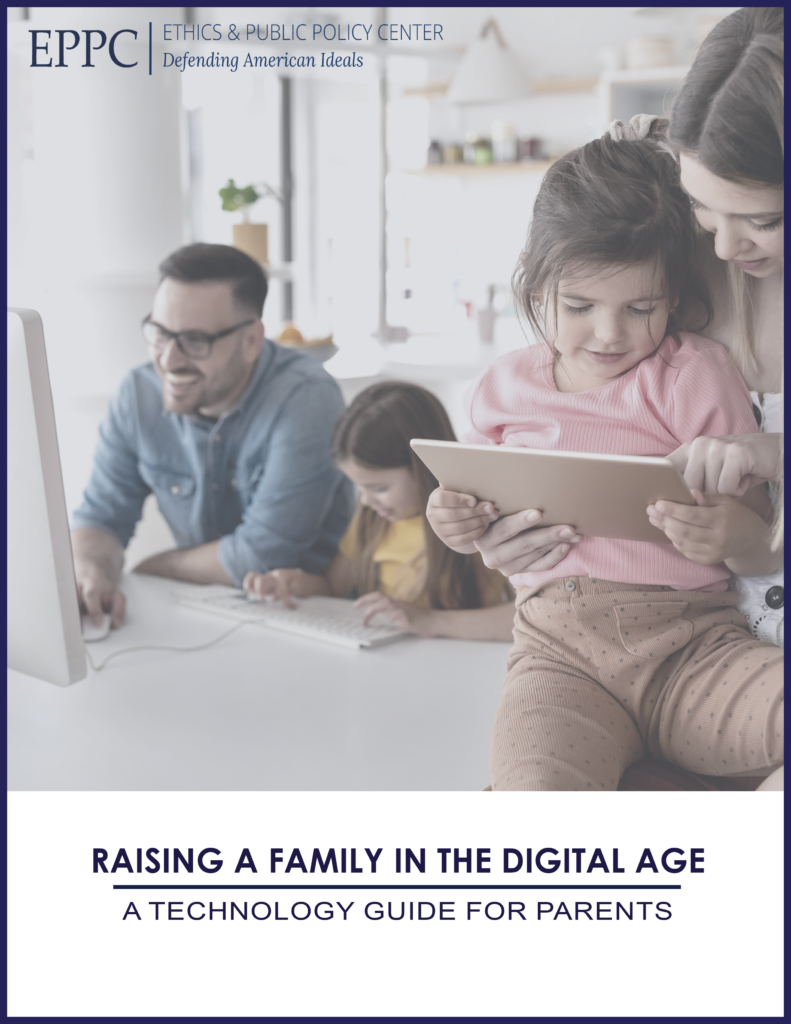
Raising a Family in the Digital Age
Today’s smartphones and social-media platforms present unique challenges for parents trying to keep their families safe and raise their children to have a healthy relationship with technology. In July, EPPC released a brief but comprehensive handbook—written by Morell with collaboration from EPPC scholars Patrick T. Brown, Noelle Mering, and Mary Rice Hasson—guiding parents through the tools and resources that can help them protect their children online.
Raising a Family in the Digital Age: A Technology Guide for Parents explains how social media and smartphones can harm children’s mental health, trap them in addictive relationships with digital technology, and expose them to violent pornography and gender-ideology propaganda. The guide recommends and compares practical tools available to parents, such as parental control and filtering software options. It suggests boundaries around technology that families can establish in their homes and communities and provides guidance for having critical conversations with children about technology. In 2023, Clare is at work writing a book tentatively titled Breaking Up with Big Tech: Saving Our Kids and Rebuilding Culture.
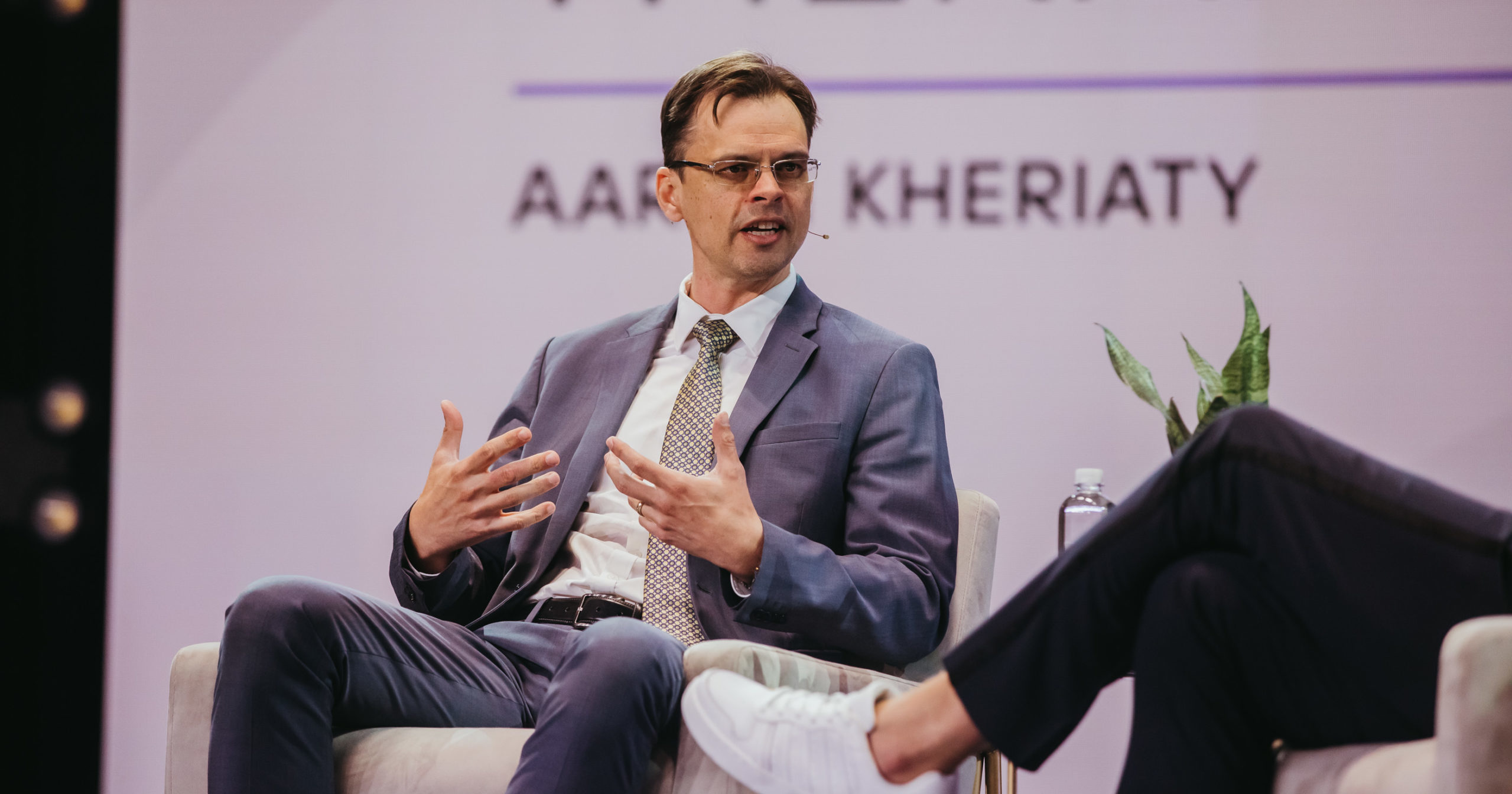
Bioethics and American Democracy
Rapid advancements in biological knowledge and technological power can radically alter human life and society. Our healthcare system faces serious challenges to its economic sustainability, and our public-health experts have lost much of their legitimacy, particularly after their response to the pandemic. The overturning of Roe presents new challenges for the pro-life movement and for our society’s understanding of health care. EPPC’s Bioethics and American Democracy program, directed by Dr. Aaron Kheriaty, emphasizes that a proper understanding of human dignity must inform the ends and means of good medicine. The program assists scientists, healthcare providers, policymakers, and citizens as they face the promise and perils of changes in biotechnology.
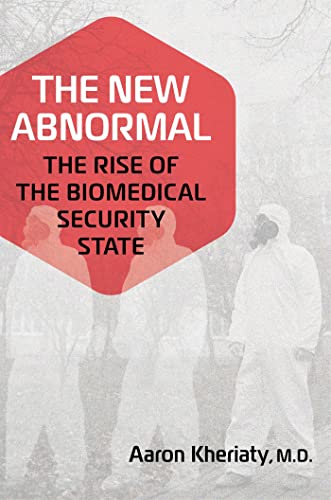
Understanding the “New Normal”
When the Covid-19 pandemic broke out, Kheriaty’s professional work put him on the frontlines. Realizing that the mental, physical, and economic toll of lockdowns would be catastrophic, he began to argue—at tremendous personal cost—that the attempted cure was becoming worse than the disease. In his Fall 2022 book, The New Abnormal, Kheriaty investigates the origins of a new totalitarianism, explains how the biomedical security state threatens public health and individual freedom, and proposes a plan for fighting back. Kheriaty’s book was widely excerpted and reprinted in outlets such as Compact, The Washington Times, The Daily Signal, and Newsweek.
Testifying for Life
Led by Kheriaty, EPPC launched an effort to train and cultivate pro-life medical professionals capable of translating their expertise into public testimony for policymakers.
EPPC scholars and a team of consultants identify experienced and potential new expert witnesses in medicine, biology, and social science. The team provides research support and testimony preparation to these witnesses, most of whom have little experience in a courtroom or legislative hearing, so they are equipped to lend their professional experience and credibility to strengthen the case for the legal protection of human life.
In partnership with the American Association of Pro-Life Obstetricians and Gynecologists, EPPC conducted six expert witness trainings in 2022, in Nashville, Indianapolis, St. Louis, Little Rock, Austin, and Washington, D.C. Twelve more trainings are scheduled for 2023—ten new trainings and two “finishing schools” for the top tier of expert witnesses.
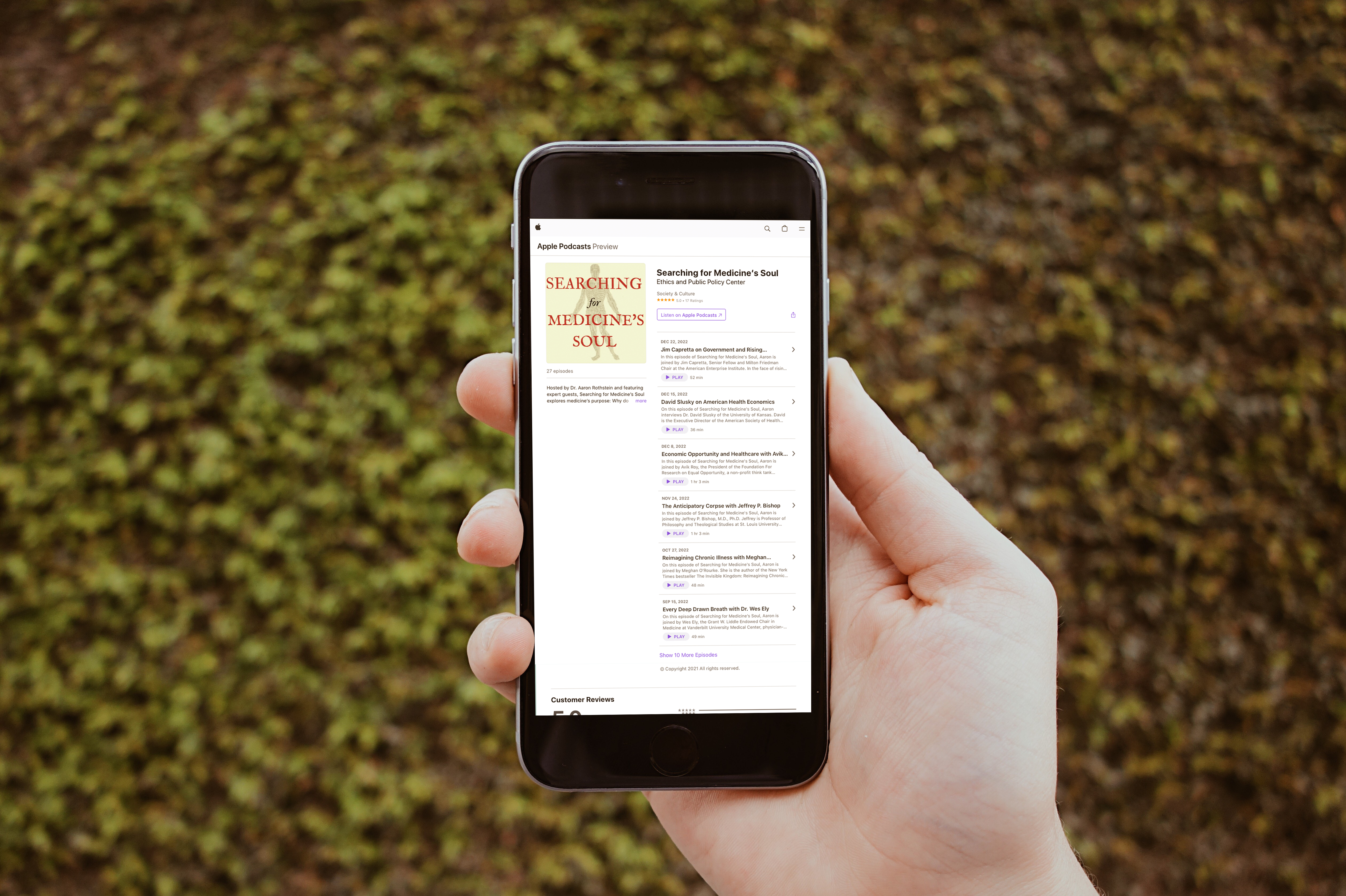
Asking the Big Questions about Medicine
Policymakers and victims of Covid-19 totalitarianism aren’t the only ones who need guidance in this challenging new medical landscape. Practicing physicians and healthcare researchers are frequently confronted with questions about the nature and goals of their vocation: Why do physicians do what they do? How does the practice of medicine relate to scientific progress? How can it properly support human flourishing? Dr. Aaron Rothstein hosts the podcast Searching for Medicine’s Soul to ask and answer these questions with leading doctors and researchers. In 2022 he featured guests such as Johns Hopkins University School of Medicine’s Dr. Paul McHugh and prolific writer and psychiatrist Samuel Shem.
How EPPC Is Renewing the Culture
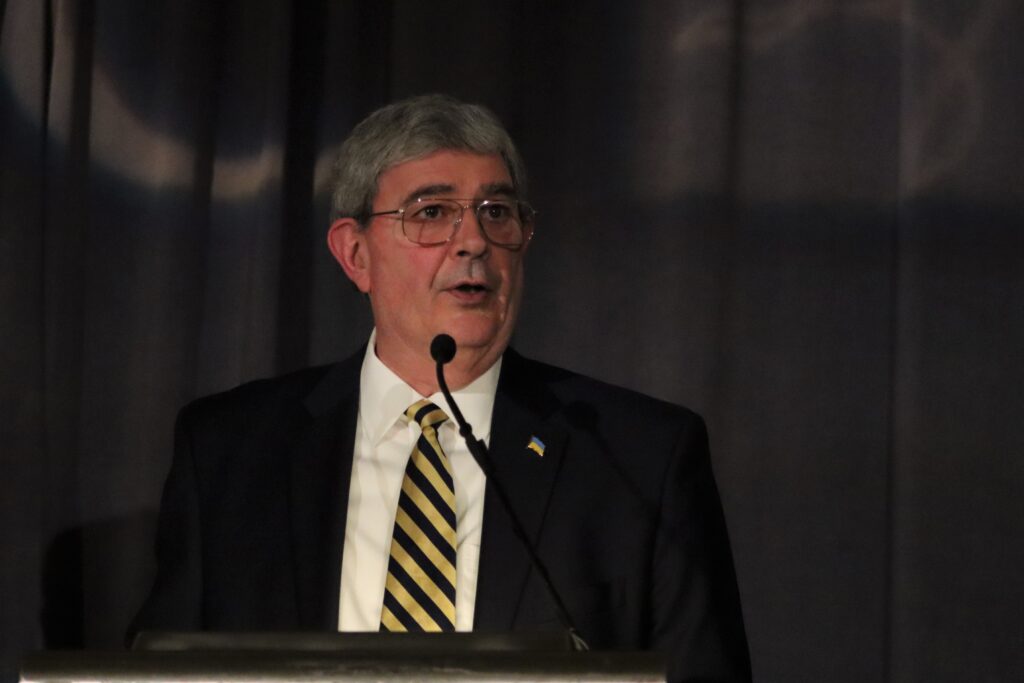
Catholic Studies
A free society can be sustained only by a robust moral and cultural foundation. At the same time, our religious institutions are in urgent need of sound guidance to help them navigate an increasingly secular culture.
An integral part of EPPC for more than thirty years, the Catholic Studies program explores issues at the intersection of Catholicism and public life, deepening public knowledge of Catholic social thought and enriching the intellectual life of the Church. As profound crises stress the Church in the U.S. and around the globe, this program’s scholars serve as a prominent reference point for government officials, lawmakers, and members of the press seeking to understand the Catholic Church, its internal dynamics, and the implications of its teaching for public policy and law.
To Sanctify the World
George Weigel continues to lead the Catholic Studies program while maintaining a prolific writing schedule. Weigel’s syndicated column, “The Catholic Difference,” is the most widely circulated Catholic press column in the country, reaching more than 2 million readers each week and addressing public and ecclesiastical issues related to the revitalization of Catholicism.
Weigel’s twenty-ninth book, To Sanctify the World: The Vital Legacy of Vatican II, was published by Basic Books in October 2022, providing a fresh analysis of the Second Vatican Council and marking its sixtieth anniversary. The book was reviewed in a wide range of publications, from the Wall Street Journal and The Economist, to National Review and the Catholic Herald. Publishers Weekly, the major journal of the publishing industry, called it “a fluid reevaluation of Vatican II’s origins and impact.”
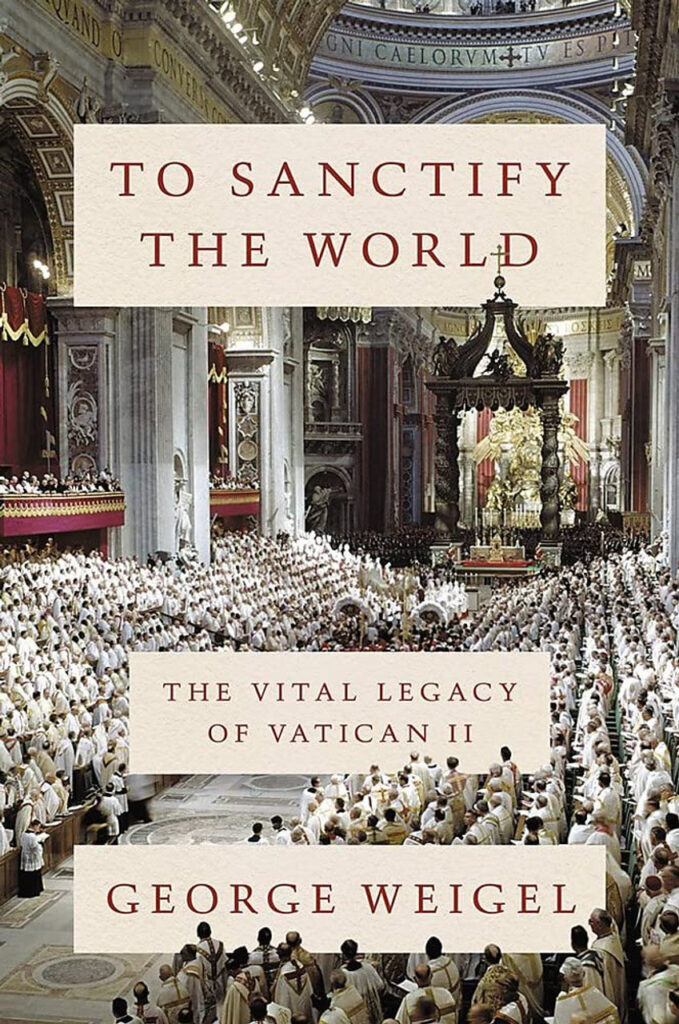
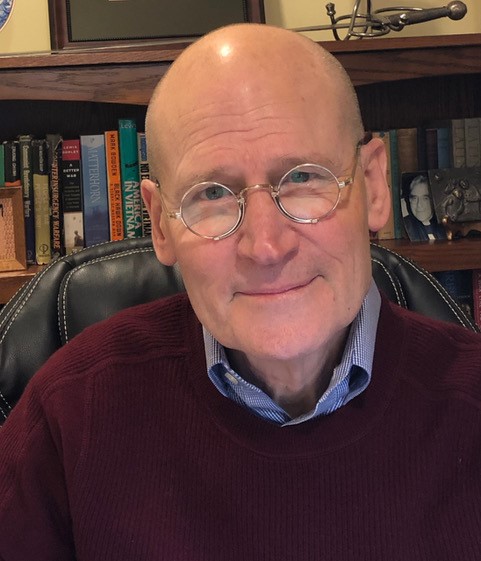
Throughout 2022, Senior Fellow Francis X. Maier, former senior adviser and special assistant to Archbishop Charles J. Chaput, published in prominent outlets such as the Wall Street Journal, National Review, and First Things—where he serves as a consulting editor—and spoke for influential audiences including the Napa Institute’s annual conference and the Fellowship of Catholic Scholars. His book True Confessions: Thoughts from a Life in the Church is the fruit of more than one hundred in-depth interviews with laypeople, bishops, clergy, donors, and religious and will be released in 2023.
Cardinal Francis George Fellow Mary FioRito, who served as the Archdiocese of Chicago’s first female vice-chancellor and executive assistant to the late Cardinal George, comments publicly on women’s leadership in the Catholic Church, the Church’s moral and social teaching, and the Church’s administration. In the months following Dobbs, FioRito was in great demand. Her expertise as both an attorney and a long-time advocate of the pro-life cause made her voice invaluable both in the public square and behind the scenes, where she helped Church officials, pro-life leaders, pro-life politicians, and candidates on both sides of the aisle speak articulately about the Dobbs decision, the effect it might have, and the resources that would be necessary to support women facing unplanned pregnancies. She appears on Relevant Radio’s weekly Morning Air show and in 2022 debuted as the host of the bimonthly Edify interview podcast.
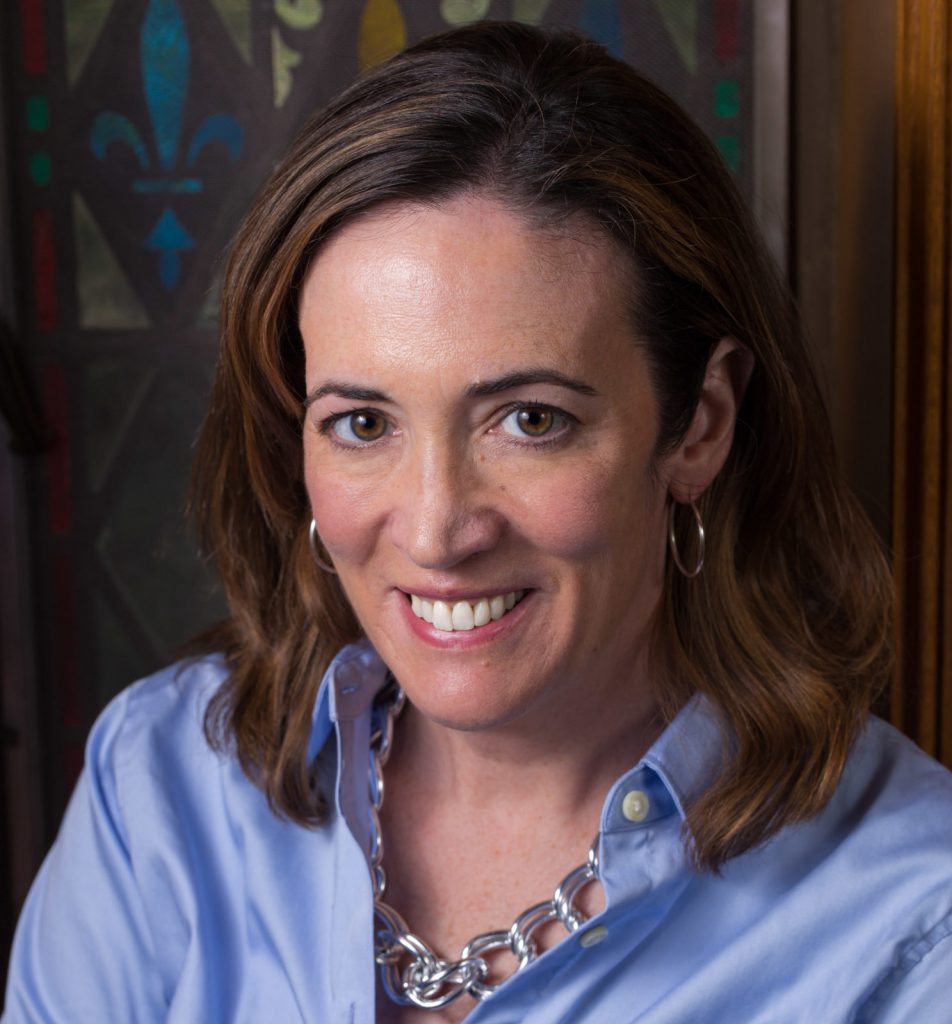

Tertio Millennio Seminar on the Free Society
The thirtieth annual Tertio Millennio Seminar on the Free Society—directed by Weigel and coordinated by Stephen White—met during July in Kraków, Poland. Despite the challenges of international travel during the pandemic and the Russian invasion of Ukraine, 30 students from the U.S., Poland, Ukraine, Lithuania, Nigeria, Serbia, and Venezuela were able to participate in the seminar. Students learned about the historical development of Catholic social thought, the life of Pope John Paul II and the history of Poland, and the role of the Church in building and protecting civil society. During its three decades, this program has proven deeply formative for many conservative leaders, including Ryan T. Anderson, our executive vice president, Mitchell Muncy, our board chairman, J. Robinson Hays, and scholars Erika Bachiochi and Eric Kniffin.
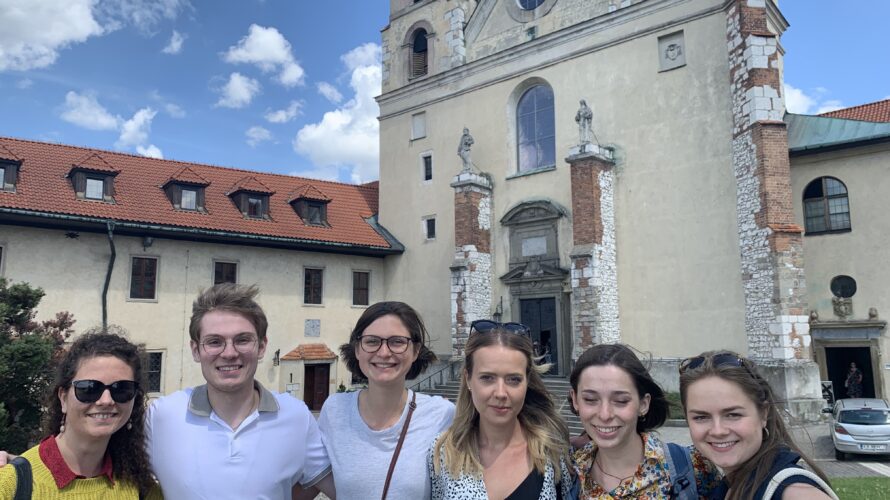
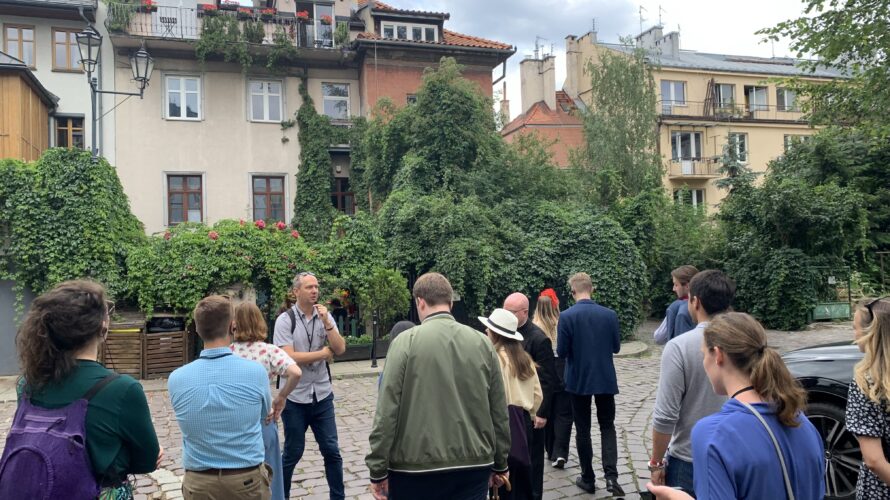
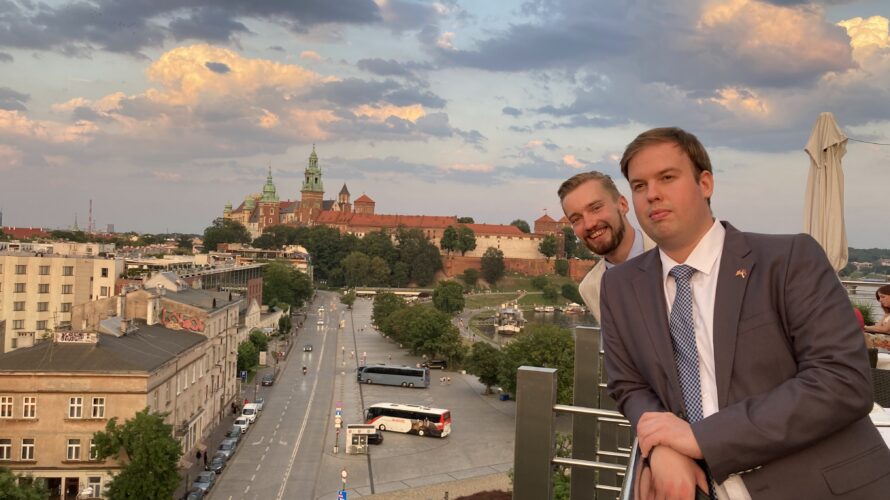

Theology of Home
EPPC’s Theology of Home Project, led by Carrie Gress and Noelle Mering, advises and equips parents to form rising generations in biblically orthodox living. Effective and intentional formation in the home provides children with a solid foundation from which they can engage the world with courage and moral clarity. Gress and Mering are co-authors of the Theology of Home book series, which includes Theology of Home: Finding the Eternal in the Everyday and Theology of Home II: The Spiritual Art of Homemaking.
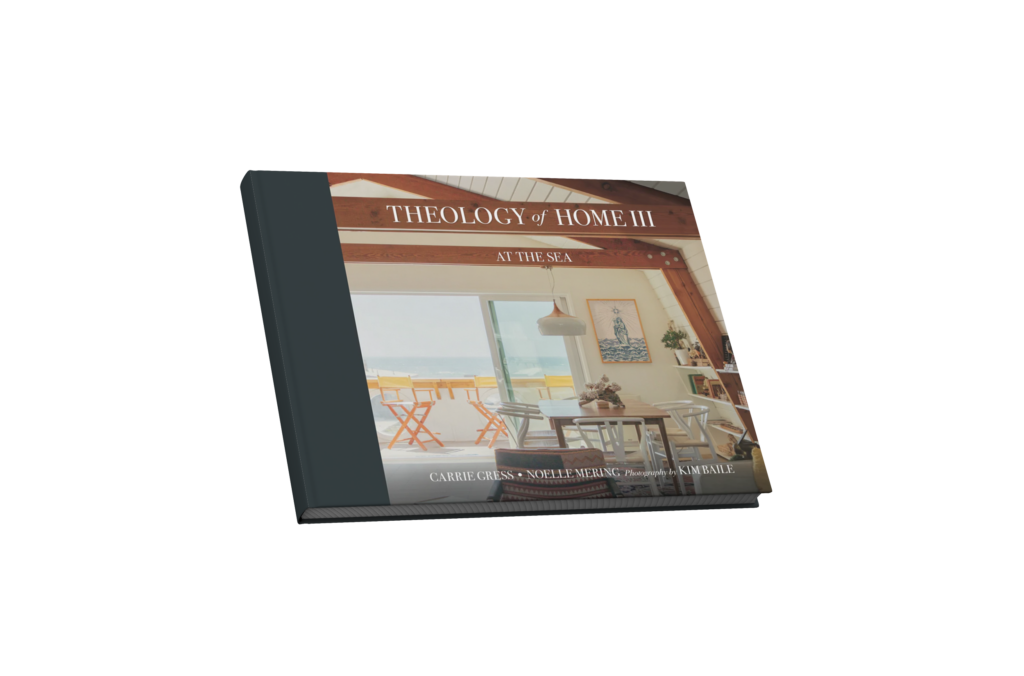
The most recent book in the series, Theology of Home III: At the Sea, was published this past summer. In this third installment, Gress and Mering—with reflections from other writers—consider the role of the sea in our memories and imaginations. Drawing from literature, mythology, and scripture, At the Sea examines the rich connections between the sea and mystery, recreation, yearning, and joyful reunions. A new book, Theology of Home IV: Arranging the Seasons, will be released in Fall 2023.In addition to writing the Theology of Home books and managing their website, Gress and Mering write regularly on social, political, and religious issues, articulating an attractive vision for living well in the midst of a culture opposed to Christian values.
Evangelicals in Civic Life
American religious life is at a crossroads, as government, culture, and industry continue to threaten religious expression and belief. The Evangelical community plays a crucial role in representing believers in the public square, providing moral and ethical guidance, and defending the right to live as people of faith in both public and private spheres. Throughout 2022, the scholars in our Evangelicals in Civic Life program—including its director, Andrew T. Walker, fellows Carl Trueman and Brad Littlejohn, and postdoctoral fellow Nathanael Blake—published commentary in First Things, The Federalist, and World magazine, along with extensive scholarship on issues facing believers.
After publishing The Rise and Triumph of the Modern Self, an award-winning 2020 study of the deep ideological roots of our contemporary cultural malaise, Carl Trueman sought to make the book’s argument accessible to a wider range of readers. Strange New World: How Thinkers and Activists Redefined Identity and Sparked the Sexual Revolution, released in Spring 2022 with a foreword from Ryan T. Anderson, offers a concise presentation of Trueman’s analysis of the history of the Sexual Revolution and expressive individualism. In 2023, Trueman will finish work on his next book, Staring Into the Abyss: How Nihilism and Ressentiment Shape Modern Life and What We Can Do about It.
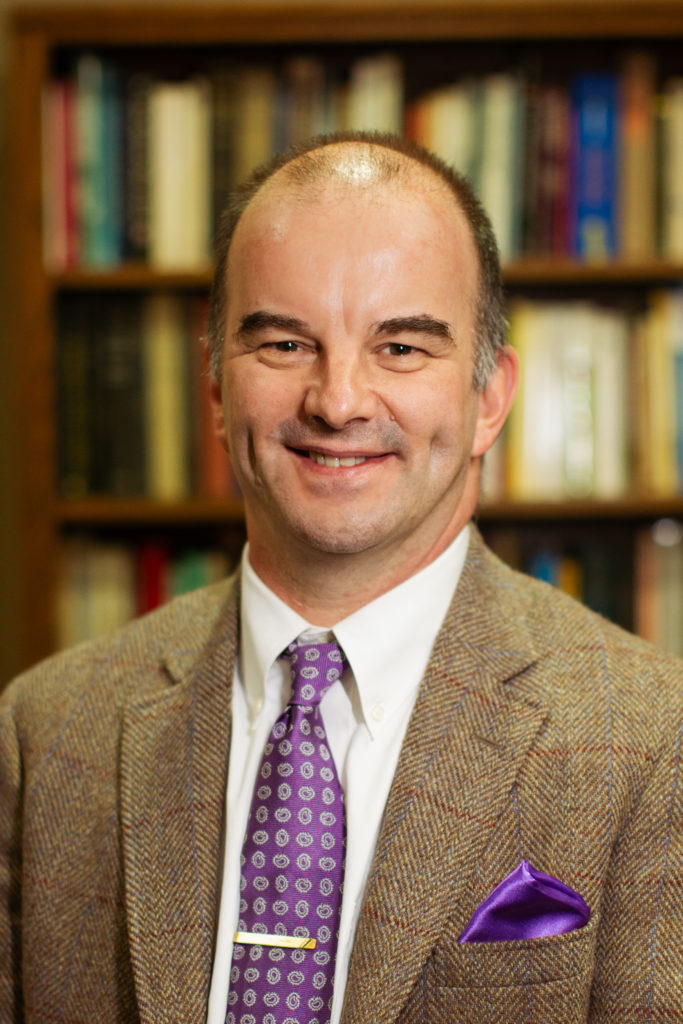
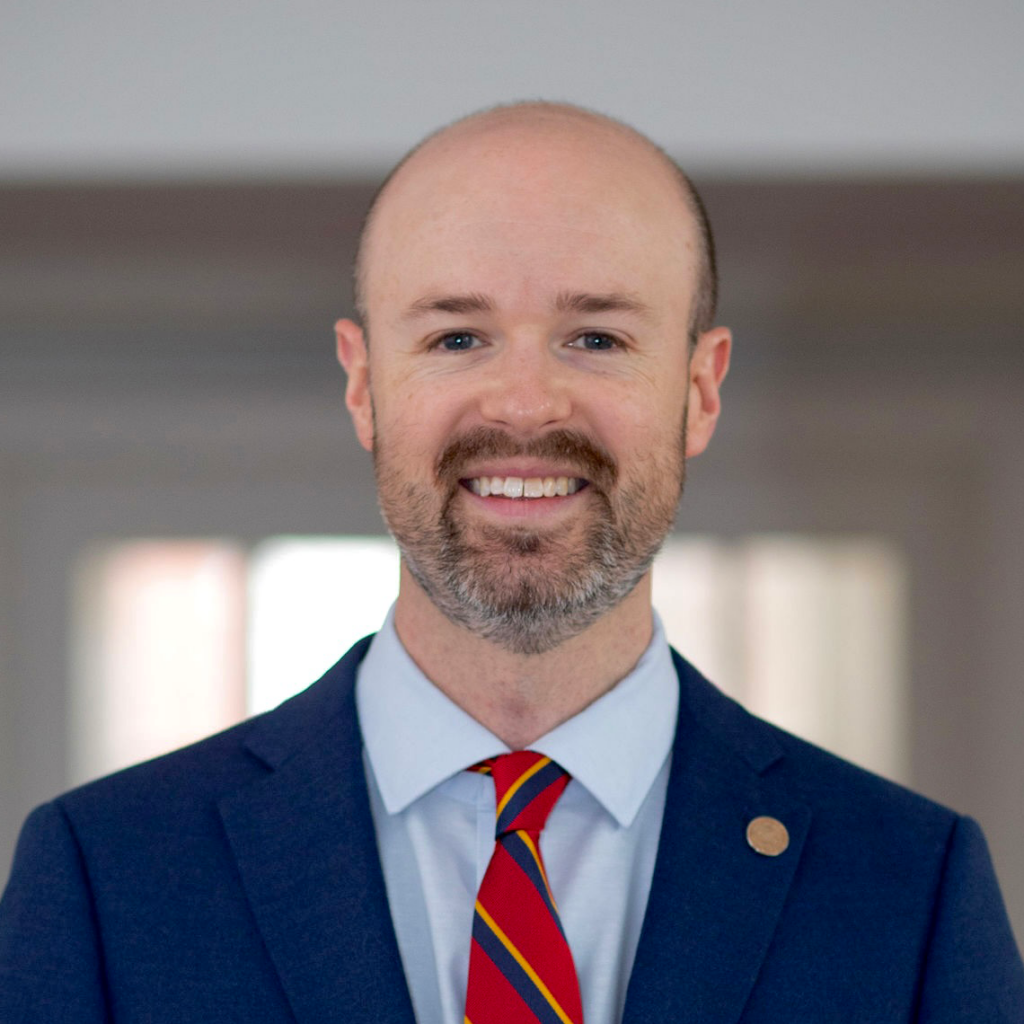
In 2023, Andrew T. Walker will release Social Conservatism for the Common Good, an introduction to and analysis of Princeton University professor and EPPC Board member Robert P. George’s thought for a Protestant audience. The book gathers essays from prominent Evangelical writers and academics—including EPPC fellows Carl Trueman and Jennifer Marshall Patterson—exploring faith and reason, natural-law theory, and the prospects for collaboration across ideological lines. The essays will help Evangelicals understand George’s philosophy and apply it to their own cultural engagement and public witness. This year Walker will also complete Faithful Reason: Natural Law Ethics for God’s Glory and Our Good, an Evangelical primer on natural law that explains the theory and applies it to modern cultural debates.
Brad Littlejohn Joins EPPC as a Fellow
In March, EPPC announced the appointment of Brad Littlejohn as a fellow in the Evangelicals in Civic Life program, where his research focuses on helping public leaders understand the intellectual and historical foundations of our current breakdown of public trust, social cohesion, and sound governance. Littlejohn wrote prolifically in 2022, contributing a regular column to World magazine, as well as articles on the role of Christians in American life and governance to publications such as The American Conservative, National Affairs, and Ad Fontes. He also contributed chapters to two collections of essays published by Davenant Press and signed two book contracts: one for a book on natural law co-edited by Ryan T. Anderson and Andrew Walker, and a solo project titled Called to Freedom: Retrieving the Liberty of a Christian in an Age of License.
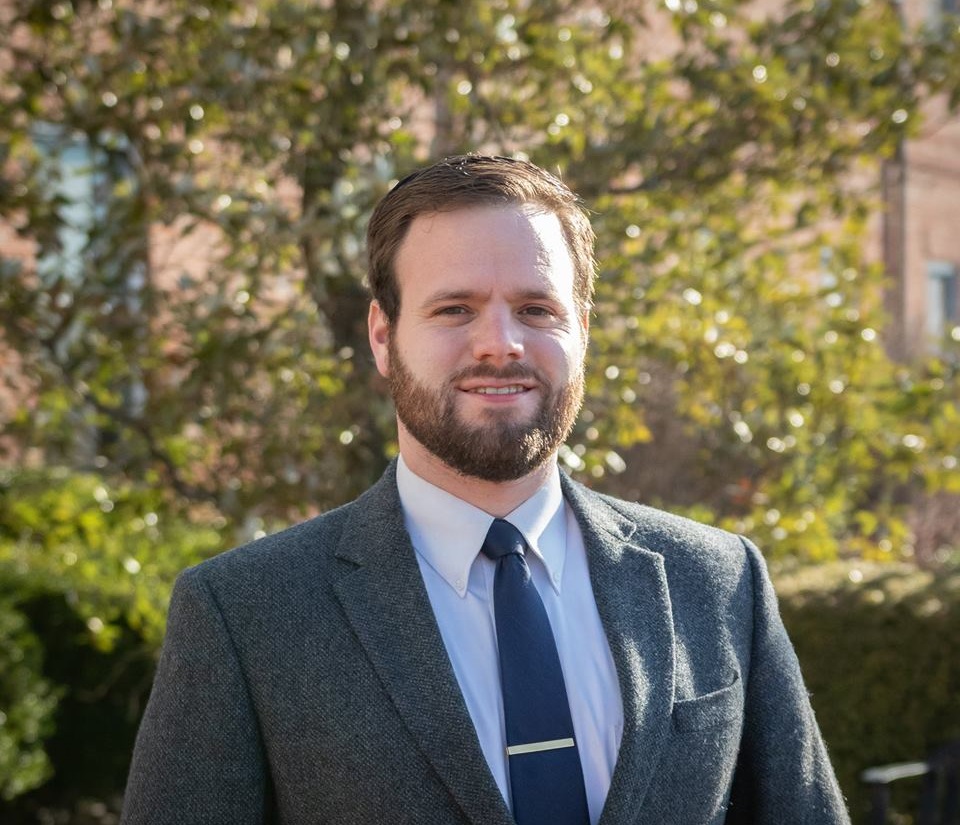
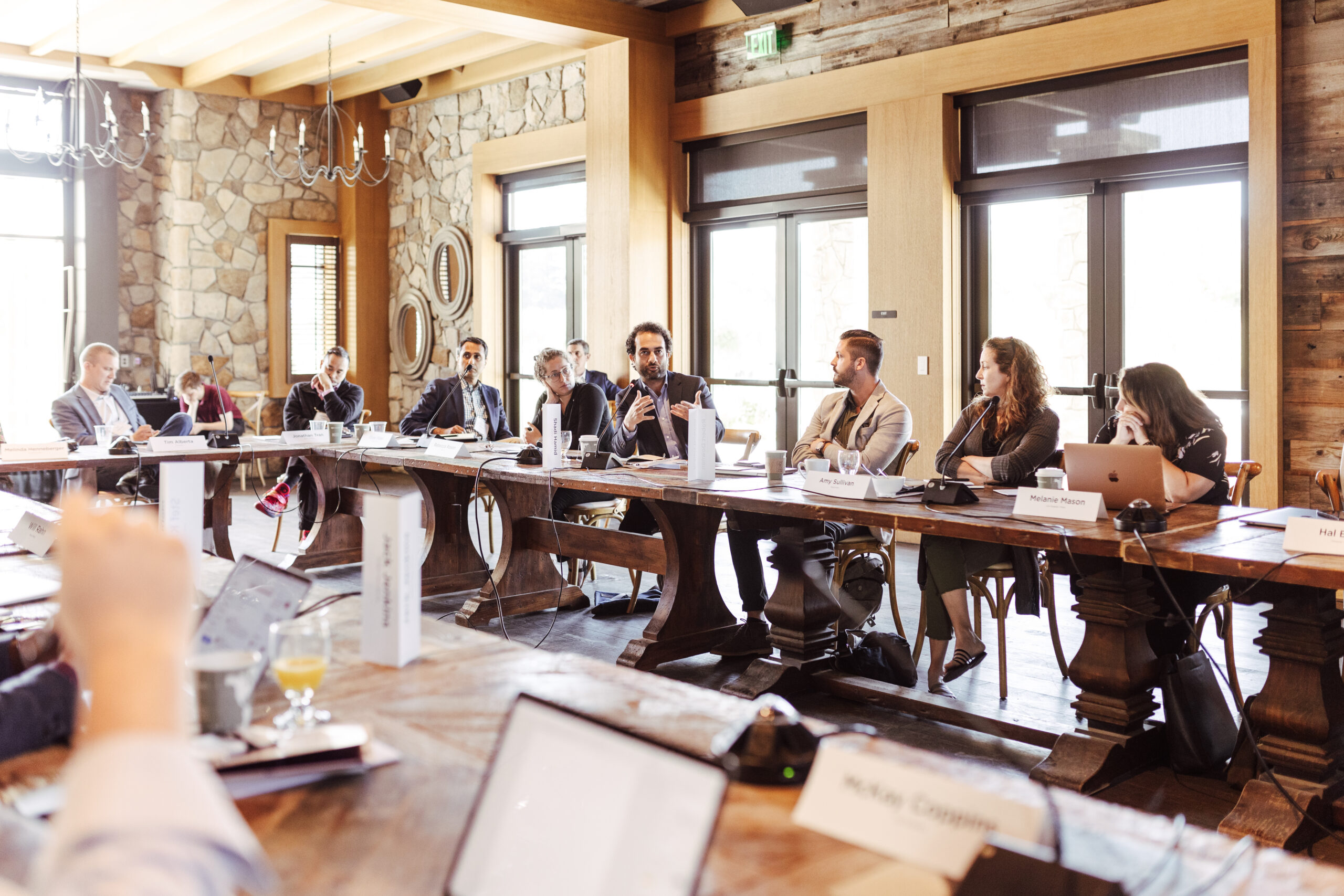
Faith Angle Forum
For almost a quarter century, EPPC’s Faith Angle Forum, directed by Josh Good, has convened groups of journalists to explore critical issues of culture, politics, and history, examined through the lens of religion in conversation with leading theologians, scholars, and clergy. This nationally recognized program equips mainstream reporters and editors to better understand religion and its role in the public square, offering forums outside the pressures of D.C. and New York newsrooms and inviting journalists into substantive engagement with these topics and relevant experts.
In 2022, Faith Angle organized three conferences in America and Europe on religion, politics, and public life, featuring discussions on topics such as contemporary forms of Jewish identity, the future of democracy in Europe, religion’s role in the conflict in Ukraine, and religious perspectives on climate change. An additional online forum was held in February on the topic of “Faith and Science in an Age of Tribalism.”
In 2023 Faith Angle will host four gatherings: one each in Miami and Napa Valley, for East Coast and West Coast journalists respectively; a forum in Washington, D.C., for promising younger journalists; and one in France for European journalists.
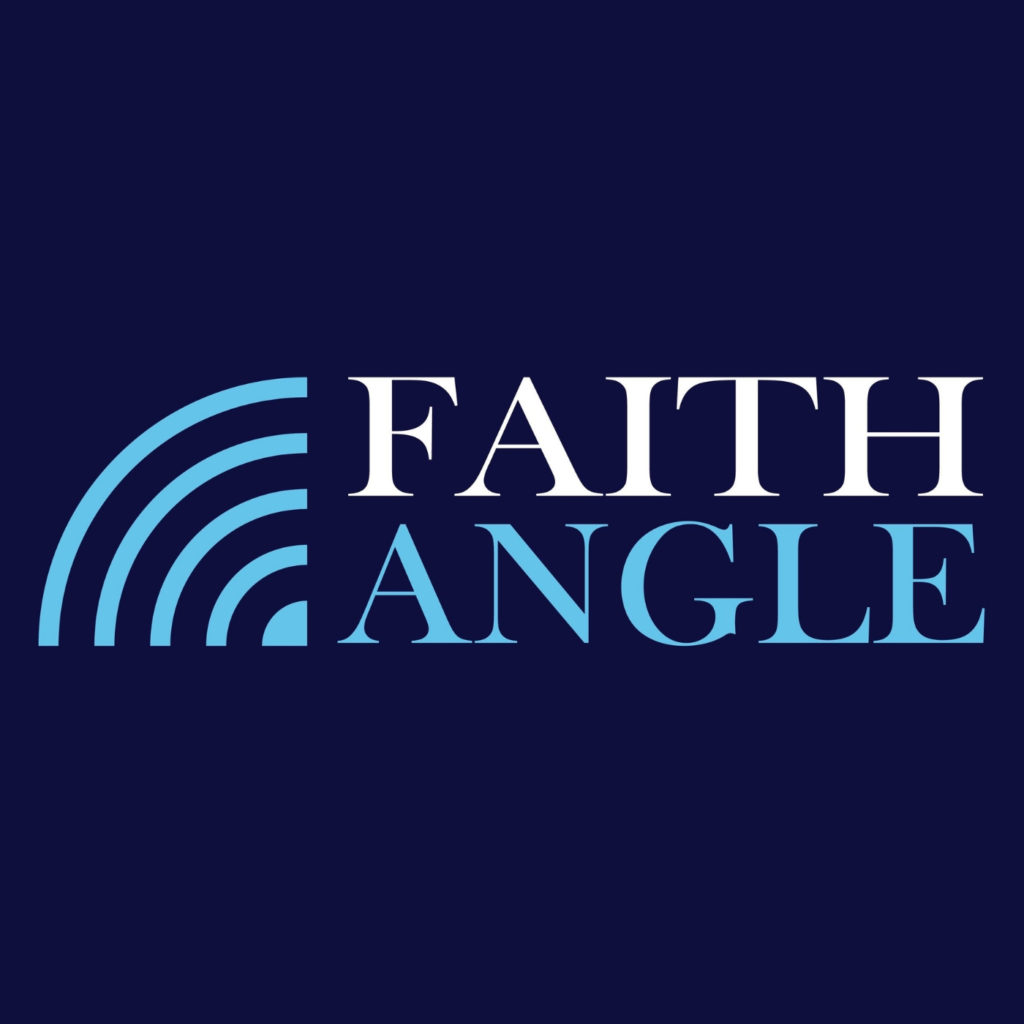
Faith Angle Podcast
In addition to its regular forums, Faith Angle also produces a podcast, released every other week, featuring a discussion between a journalist and a religious scholar or cleric. Its audience now exceeds 1,600 downloads per episode. In 2022, notable guests included Anglican theologian Sarah Coakley, Senator Ben Sasse, Christianity Today editor-in-chief Russell D. Moore, and Washington Post columnist Christine Emba.
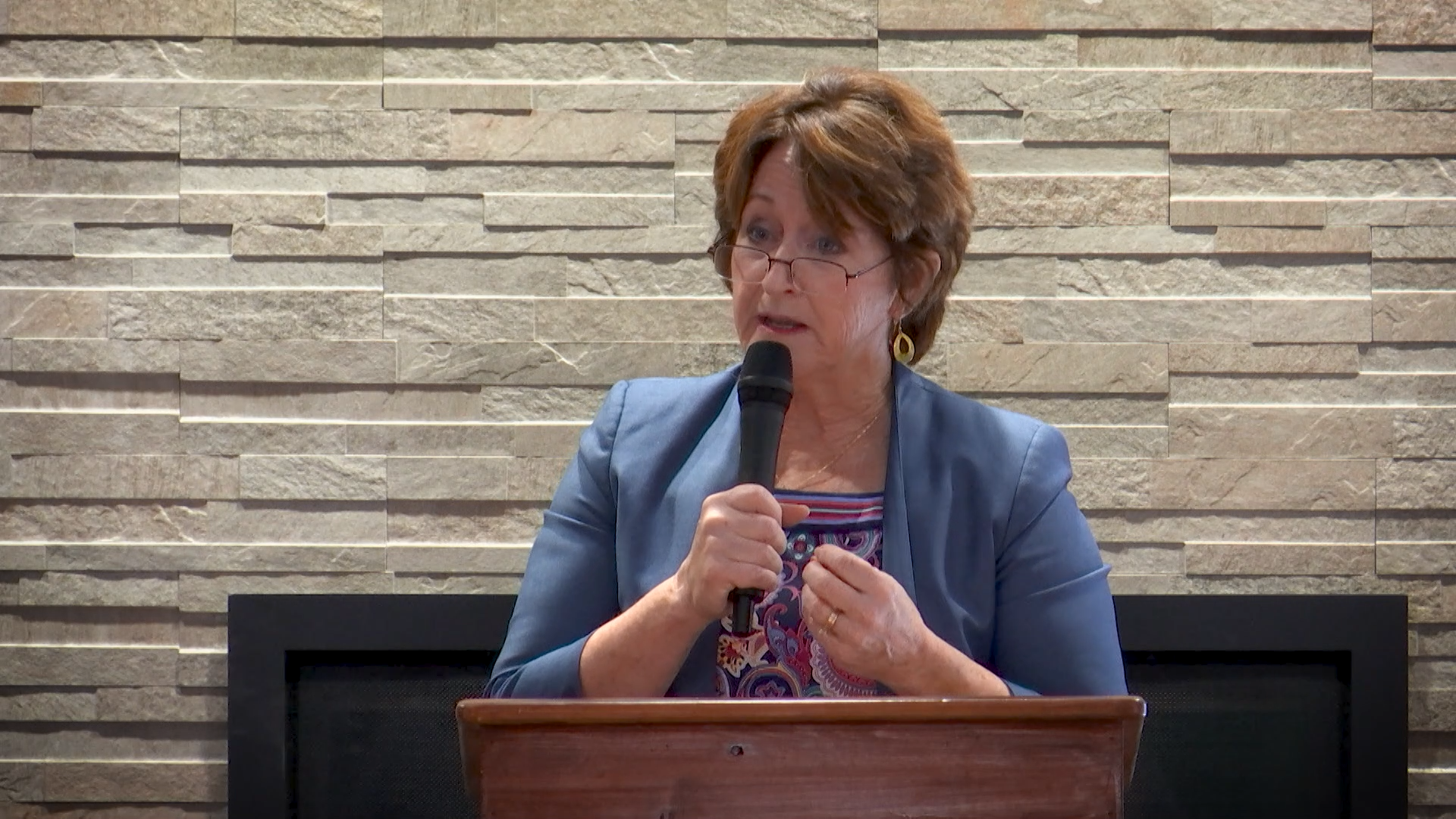
Person and Identity Project
Mary Rice Hasson directs EPPC’s Person and Identity Project (PIP), dedicated to supporting families and faith-based institutions as they oppose gender ideology and promote the truth about the human person.
The rapid cultural embrace of gender ideology has left Americans, even devout religious believers, confused about sexual identity. Many religious Americans erroneously believe that compassion requires affirming mistaken “transgender” identities and assenting to a view of the human person opposed to the historic teachings of Christianity. Families need guidance, and clergy and staff often feel ill-equipped to provide it.
The Person and Identity Project responds to this urgent need, guiding religious institutions as they promote a Christian vision of the person and navigate complicated legal questions. The project offers specialized presentations, workshops, and toolkits that expose and counter serious threats to parental rights, religious freedom, and the exercise of medical conscience. In the policy arena, PIP experts assist legislators, litigators, and nonprofits as they oppose extending anti-discrimination protections to “gender identity.”
In 2023, the Person and Identity Project will release two new resources currently under development, a Leadership Toolkit and a Hispanic Catholic Toolkit, to provide assistance to an increasing number of institutions, Catholic dioceses, and individuals.
Leadership Toolkit
PIP experts already provide numerous dioceses and schools with individualized consultations, guiding their policy development, teacher training and formation, and pastoral approaches. Nevertheless, the need for guidance outstrips the program’s capacity to provide individual trainings to every group that requests them. A Leadership Toolkit will provide a more efficient way to offer this specialized knowledge to many more religious institutions and leaders, making available model policies, language guides, and “best practices” statements, annotated to explain how leaders should address specific issues related to gender ideology.
Hispanic Catholics Toolkit
Spanish-speaking Catholics form an underserved but vital part of the religious community, and they currently lack many resources to help them understand and respond to the novel gender ideology affecting their churches and families. The Person and Identity Project is in the process of creating Spanish-language materials for parents and ministry leaders, including fact sheets, resource lists, displays for parish use, and several short videos for use on social media. This will address an acute need: making substantive Christian teaching on anthropology and gender ideology accessible to Hispanic families. This innovative program will provide a scalable model that could be replicated by preparing customized materials and presentations for a variety of faith traditions and secular backgrounds.

The Transgender Movement: What Catholics Need To Know
In October 2022, Mary Rice Hasson debuted her five-part miniseries, The Transgender Movement: What Catholics Need to Know, featuring Ryan T. Anderson and Theresa Farnan, on EWTN. This series addressed the nature and rise of transgenderism and its agenda, as well as the factors that faithful Catholics ought understand in order to counteract it.
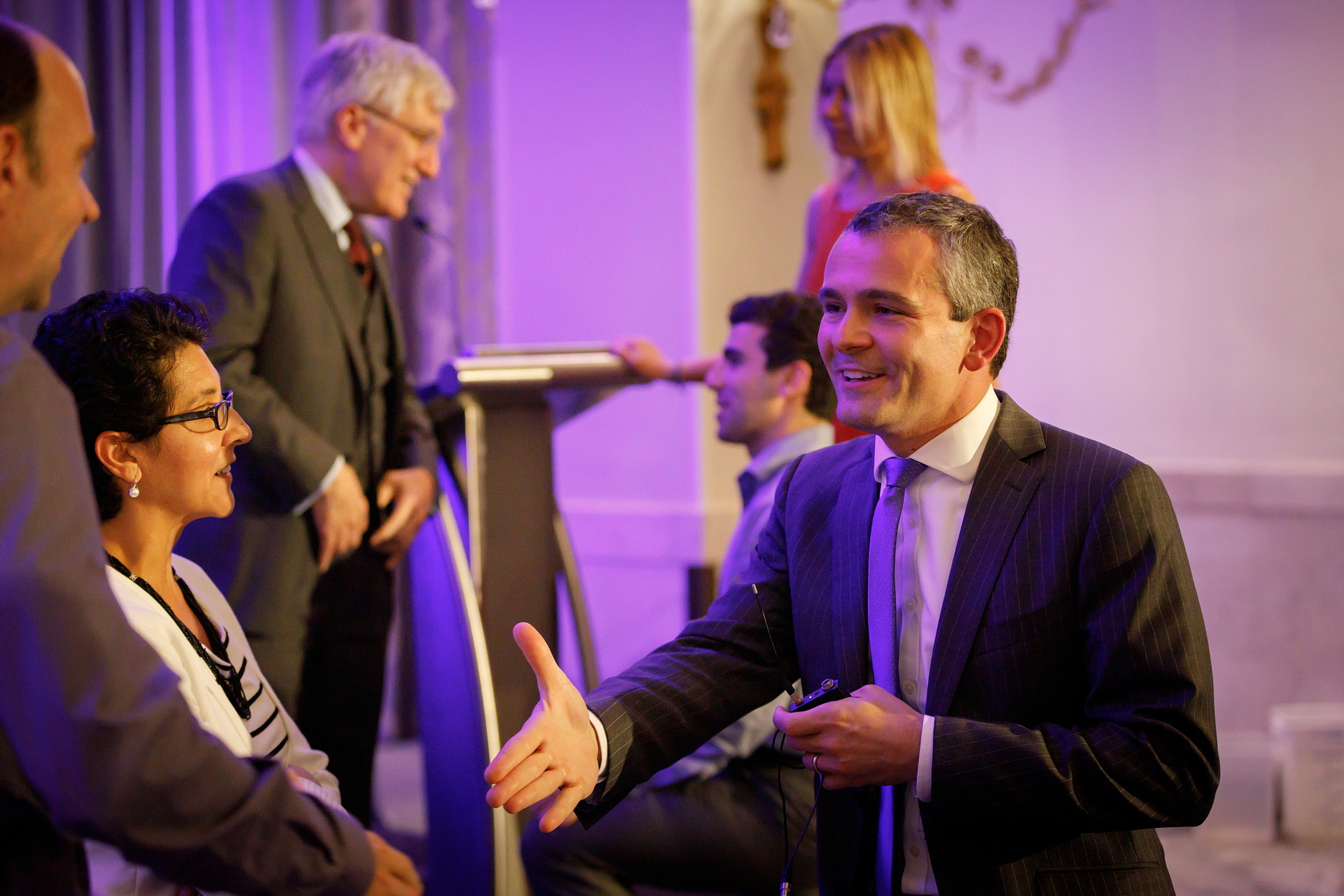
Join Us In Our Work
With a donation to the Ethics and Public Policy Center, you join us in pursuing America’s continued civic and cultural renewal by applying the riches of the Judeo-Christian tradition to contemporary questions of law, culture, and politics. We greatly appreciate your partnership in the effort to bring timeless principles to bear on urgent questions of policy and culture.
Online
Checks should be made payable to the Ethics and Public Policy Center.
Please mail to:
Ethics and Public Policy Center
1730 M Street N.W., Suite 910
Washington, DC 20036-4548
To discuss other ways to give, please contact Director of Development Elizabeth Winston at [email protected].
Ethos
Ethos is a quarterly journal of the Ethics and Public Policy Center dedicated to the work of its scholars and fellows to shape policy and renew culture, applying the riches of classical and humane learning, deep study, and religious conviction to the urgent debates carried out in the course of our national public life.
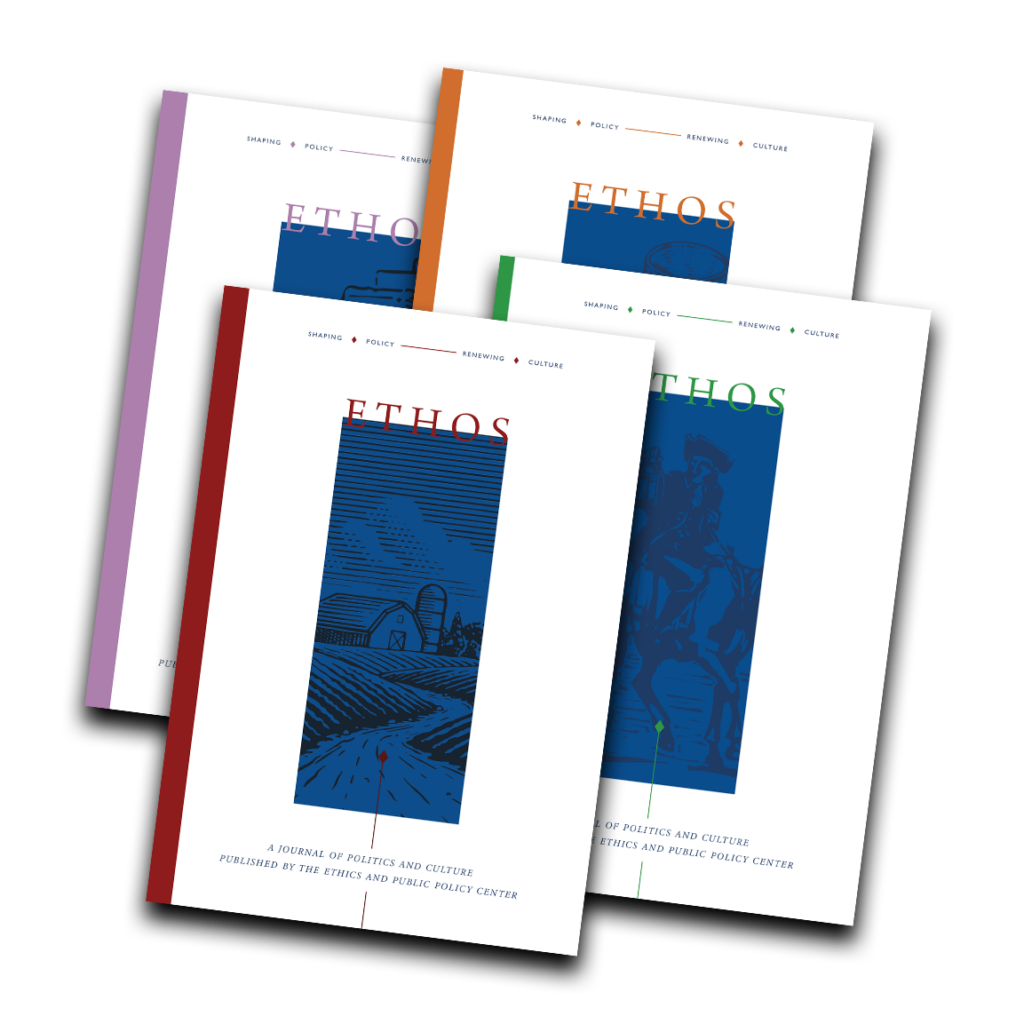
Ethos is mailed quarterly to donors who make an annual contribution of $1,000 or more.

